REPORT



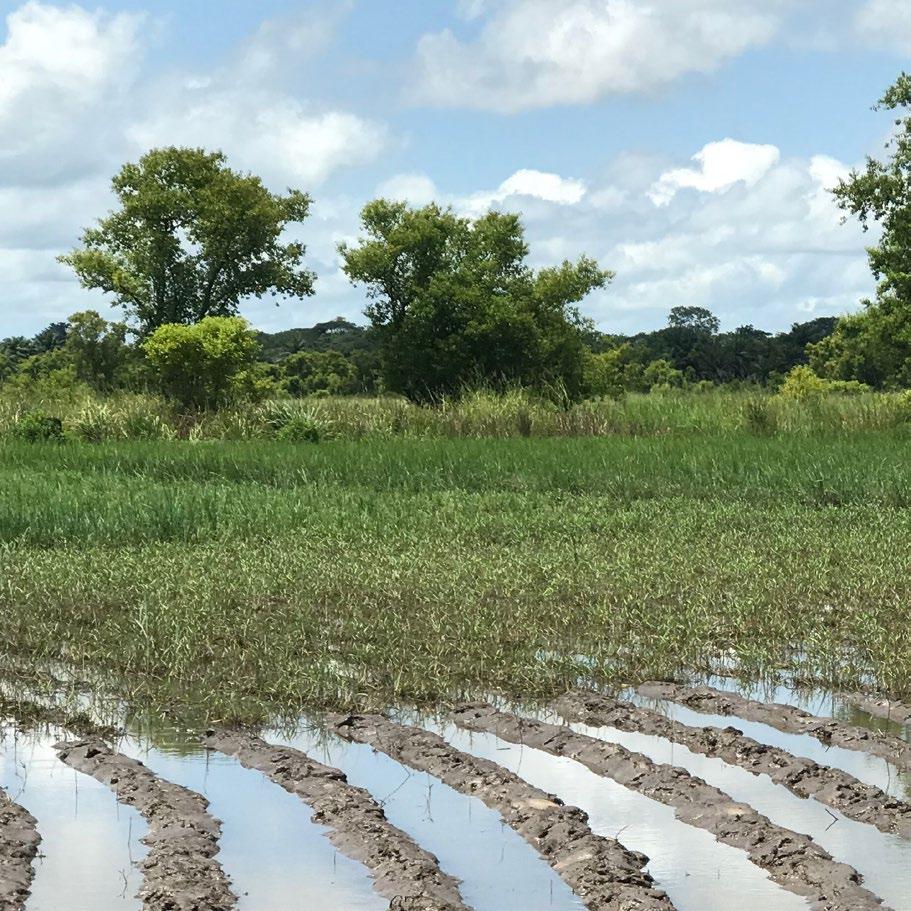

In 2021, the Instituto Marquês de Valle Flôr (IMVF) pursued its development cooperation projects in several countries, with special emphasis on the ongoing actions in Guinea-Bissau, São Tomé and Príncipe, Gambia and Colombia, due to their dimension and impact. Our support activity towards the local authorities and civil society in Portugal re mained at a high level and the established synergies with various European partners enabled to increase the scope of the undertaken activities, whether to promote global citizenship, to the fulfilment of the Sustainable Development Goals (SDGs), or to the reflection and debate over the global challenges that we face.
As before, we focus our activity on supporting the most vulnerable communities of the countries where we operate, on the respect towards the planet’s sustainability and having as a beacon for our actions the respect for human dignity.
Partnerships and other forms of cooperation with public, private and civil society entities in the coun tries and places where we operate were always present in the work carried out, increasing the effective ness of developed activities.
Throughout 2021, the struggle against the COVID-19 pandemic remained one of the crosscutting con cerns of all our developed projects and actions.
The experience accumulated throughout our main fields of action, namely in health, education, gener ating employment opportunities, training and ca pacity building, and rural development, has enabled us to consolidate the Institute’s presence in various countries and to maintain its relevance in the set tings in which we intervene.
In short, despite the hardships and challenges we have overcome, the outcomes expressed in this Re port give us comfort to keep pursuing the purpose of IMVF.
A word of thanks is unquestionably owed to our main funders’ continued support, namely the Euro pean Union and Camões, I.P.
Finally, as it reflects the Institute’s most important asset, I renew my gratitude to our co-workers, both at the headquarters and at the projects’ implemen tation sites, for their commitment and professional ism.
 Paulo Telles de Freitas Chairman of the Administration Board
Paulo Telles de Freitas Chairman of the Administration Board
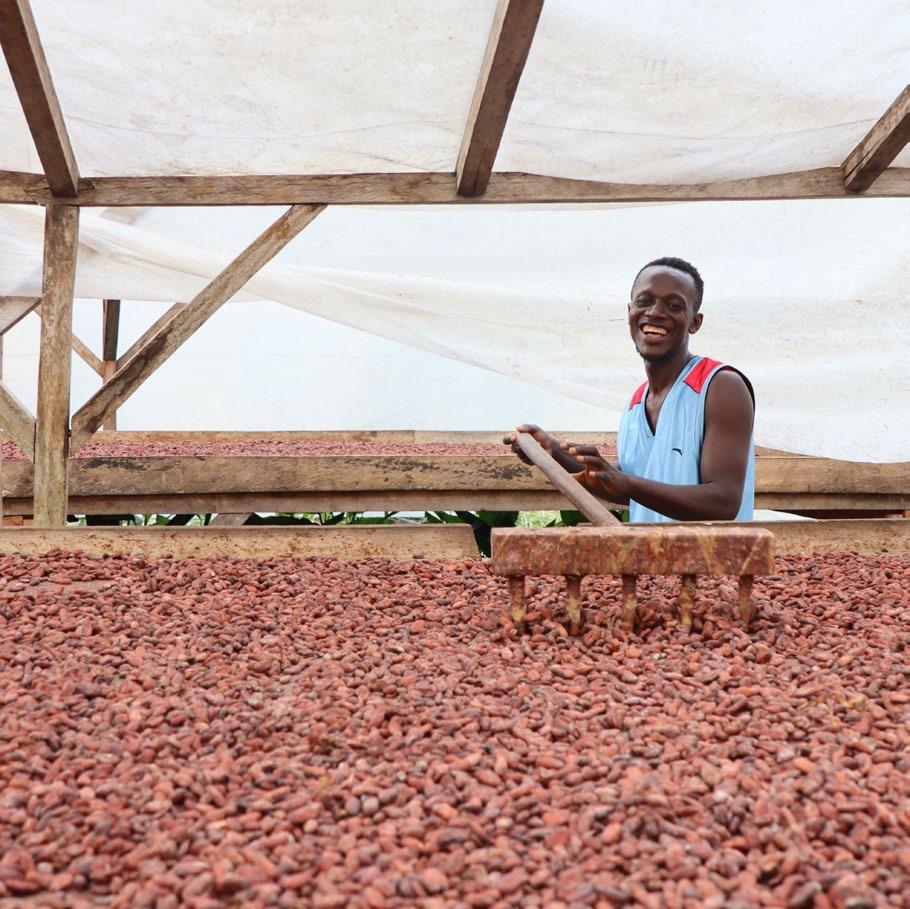
Although the COVID-19 pandemic and its effects marked yet another year (2021), IMVF activities carried on in the various countries in which it operates. There has been the ability to find appropriate responses to the ongoing projects’ challenges, as well as the capacity to initiate new projects, namely in the healthcare domain, preparing, supporting and implementing antiCOVID-19 projects.
IMVF’s cooperation vision and strategy is consistent with the United Nations 2030 Agenda on Sustainable Development Goals (SDGs), as well as with the main funders’ major guidelines.
As in previous years, our 2021 field projects were mostly funded by European tenders, as the Euro pean Union kept the cooperation strategy focus on sustainable development reinforcement, developing countries’ stability and the extreme poverty eradication - all underlying objectives of our activity.
Several European funds, including the EDF, have been integrated into the new “Neighbourhood, Development and International Cooperation Instru ment”, pointing to the increasing cross-cutting nature of some of today’s biggest challenges, from global warming to the gender equality struggle, or from refugee and migrant flows to security issues, which require integrated actions capable of achieving multiple objectives related to sustainable development.
By renaming the cooperation department as “Inter national Partnerships”, the European Commission has increased its scope and flagged three major priorities for the next five years, namely the AfricaEurope Alliance, the Digital Partnerships and the Ecological Pact. The Institute’s planning for the coming years will take due account of these priori ties.
However, it should be noted that, although the majority of the funds still come from the Euro pean Union, IMVF has maintained its strategic and complementary partnership with Portuguese Cooperation and has continued to monitor the Delegated Cooperation opportunities.
Characterised by rapid and, in some cases, struc tural changes, the complex international, european and geographical reality in which we work was directly and indirectly reflected in the NGDO work, including that of IMVF.
Therefore, we kept on emphasizing the strategic reflection on the dynamics affecting our activity domains, in particular the isolationist impulses and their reflexes on the development and cooperation activities’ financing and accomplishment.
Despite the constraints, mainly resulting from the pandemic, IMVF’s action has expanded. A positive balance of the work carried out is evident, with the Institute’s activity being guided, in each accomplished action, by the search for sustainability, prioritizing, as always, solid partnership building within the countries and sectors of intervention. The local actors’ empowerment has remained a central component in all the adopted approaches and strategies, aiming at greater national and local autonomy after the projects’ implementation period.
In 2021 our action has been reinforced in the countries in which we have been the most active in terms of Development Cooperation projects:
• In Gambia, we pursued the first Portuguese cooperation project, focusing on rural development actions and working with young people.
• In Colombia, we also pursued the Institute’s first Latin American project, seeking to stabilise and support the Caquetá region’s development, where there has been, until recently, the greatest intensity of military and guerrilla action. The visit of the Portuguese Secretary of State for Foreign Affairs and Cooperation, Francisco André, should be highlighted.
• In Guinea-Bissau, we remained a reference organisation in maternal-child health, covering all the country’s sanitary regions. A project in this area, financed by the World Bank, was initiated this year, which ensures the transition between PIMI II and PIMI III (to be initiated in 2022). We gave continuity to the major civil society support project, by mobilising and empowering local communities to be leading actors in solving the problems that affect them through jointly designed solutions. We are working on a draft project on radicalism and violent extremism prevention, in partnership with the Guinea-Bissau Human Rights League, and with the Chatham House and the Timbuktu Institute participation, which was, in the meantime, approved by the EU and will start in 2022.
• In São Tomé and Príncipe, we pursued our health strategic intervention, with Portuguese experts’ and clinical support missions via telemedicine. A new historical breakthrough in telemedicine, with TeleGastro’s and the new São Tomé’s Central Hospital Imaging Unit inauguration, characterized the year of 2021. This pioneering technological solution enables a real time gastroenterological assessment of patients between two continents.
In this context, it is important to highlight the Portuguese Secretary of State for Foreign Affairs and Cooperation, Francisco André’s words:
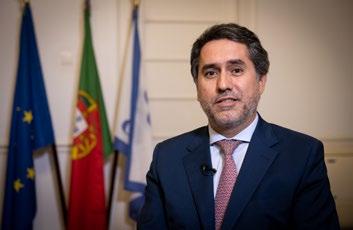
“Saúde para Todos (Health for All) represents one of Portuguese Cooperation’s major achievements. Its added values are, as we know, widely acknowledged, both by the Government of São Tomé and Príncipe and by the international community itself”.
[...] IMVF’s action has expanded. A positive balance of the work carried out is evident [...]
António Sales, the Portuguese Assistant Secretary of State for Health, who attended the event, also emphasized that Health for All:
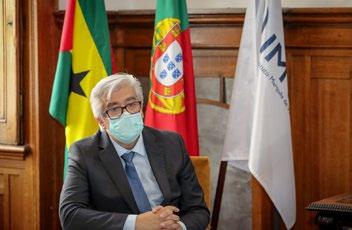
Furthermore, the clinical response capacity to patients in need of respiratory support in the country was reinforced through the oxygen productive capacity replacement support project at Dr. Ayres de Menezes Hospital (HAM). The HAM’s Oxygen Center is currently able to supply oxygen to the hospital’s patients.
Finally, we should highlight a documentary production entitled “the digital world at the service of health - the case study of telemedicine between São Tomé and Príncipe and Portugal”.
In what concerns education, we have pursued the Integrated Support Programme for the Education Sector - PAISE, not only in secondary school but also in higher education, with teachers’ training throughout the country as well as portuguese language and mathematics teaching in the Autono mous Region of Príncipe. This project is developed in partnership with the Universities of Aveiro and Évora, and the University of São Tomé and Príncipe.
In the food governance area, we continued to work on the civil society’s reinforcement and empower ment, contributing to food and nutritional security and sustainable development of São Tomé and Príncipe. In 2021, in the agricultural export sector, a new project was launched aiming to strengthen the economy and to create jobs in São Tomé and Príncipe.
Also in the healthcare domain, we continued to reinforce the emergency response to the COVID-19 epidemic in São Tomé and Príncipe as well as to contribute to improve national healthcare system’s level of resilience and capacity to respond to future epidemics.
• In Cape Verde, the inclusion project for children and youth with neurological disabilities gained prominence with the Tudo Fidju Di Cabo Verde national awareness campaign launch, a campaign to raise Cape Verdean civil society’s awareness to the importance of accepting the different and promoting the inclusion of children and young people with neurological disabilities in Cape Verde. Of note is the new € 3,000m “Maio 2025” project on the island of Maio at the end of the year, which aims to build a sustainable territorial development model for the island.
“Is an excellent example of collaborative efforts for greater health impact and effectiveness. With the effort, commitment and dedication of everyone involved, it has been possible to improve São Tomé and Príncipe’s health services accessibility, equity, and quality”.
• In Angola, in the provinces of Huambo, Bié and Malange, the agricultural technical assistance project was completed. Its goal was to improve the main local agrifood products’ value chains. IMVF will maintain its intervention in the water and sanitation area with public campaigns in Bengo and Cunene provinces.
• In Portugal, a new partnership was established with ISCTE-IUL with the InovHumRe - Innovation In Humanitarian Response - project launch, which aims to improve the quality and effectiveness of Humanitarian Action through students and profes sionals’ qualification.

Our partnership with Chatham House in the UK (one of the world’s most prestigious think-tanks) was continued, with the completion of a joint work for the Melinda and Bill Gates Foundation, a part nership that will be pursued, namely in the joint work on a new project in Guinea-Bissau.
In 2021, we have increased the Institute’s action among new partners in the fields of Global Citizenship, Inter-municipal Cooperation, Strategic and Development Studies, and Communication
Climate change, migration, sustainable food and the SDGs were the priority areas of action in the Global Citizenship. The main target audience were young people, with the Climate of Change project action featuring, in Oeiras, a contemporary circus show on climate and migration with great public impact.
In the Inter-municipal Cooperation, we highlight the People & Planet project’s operational start-up, with global operational management by IMVF. We continued to act within the framework of the Inter municipal Network for Development Cooperation (RICD - in portuguese) partnership, strengthening the municipalities’ capacity in the SDGs location area.
We continued our partnerships with Strategic and Development Studies, namely with the Lisbon Club. Our collaboration with academic institu tions continued, notably with ISCTE-IUL, and with defense and security institutions, especially with the Military University Institute and the National Defense Institute.
11
In 2021, the Communication team remained committed to publicizing IMVF’s action, at an institutional level, as well as its implemented projects in the various geographies and areas of intervention, continuing to contribute to the Institute’s awareness and recognition, and giving voice to the various actors of Development.
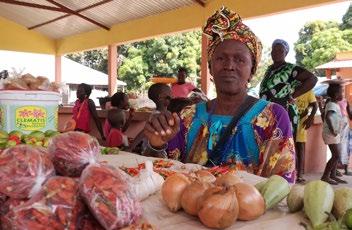
IMVF continued its trainee host policy through established protocols with several Portuguese universities. The trainees were integrated in different Units and provided support to several activities carried out throughout the year.
In short, in 2021 we have strengthened IMVF’s reference positioning in several of the intervention’s thematic areas.
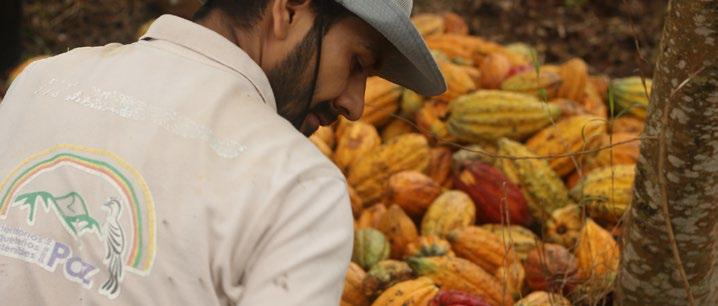
[...] In short, in 2021 we have strengthened IMVF’s reference positioning in several of the intervention’s thematic areas. [...]
The 2021
analysis
by the start of six
with a
amount of around 11,600 K€.
From a macro point of view, there is a 6% growth in the project’s portfolio value, amounting to 8,485 K€, close to 1% above the 2020 recorded value.
Regarding IMVF’s implemented projects financing, the evolution by type of funder was as follows:
Union
1%, from the
resulting from
and despite the PIMI II
completion. As for the Portu guese Government, specifically by Camões, I.P.,
of the financing of approximately 38%
as a result of the partnerships with the Marquês de Valle Flôr Association (AMVF) in the PAISE-STP and Health for All projects in São Tomé and Príncipe, and further as a result of the co-financing of the People & Planet project.
Regarding financial results, there has been an increase in subsidies included in the Income Statement, amounting to around 8,400 K€.
As far as Services Delivery, the annual values remained unchanged. This item amounted to a total of about 207 K€.

Overall, a slight cost increase of 3% was recorded, as a result of the resumption of some face-to-face activities and the return to face-to-face work.
As in the previous year, the provision under the Equity Equivalence Method relating to the 100% shareholding that IMVF holds in Valle Flôr Consulting, Lda, formed in March 2017, was again reduced.
Accordingly, the Institute’s Net Result for the financial year was € 25,007.98. It is suggested to transfer this Result to the Retained Earnings account.
Regarding assets and liabilities, as stated in the financial statement, there are no significant changes except for the ones mentioned above, namely the increase in future liabilities due to the beginning of new projects.
With respect to human resources’ management, the promotion of a framework for improving efficiency, productivity and maximising internal coordination processes continued to be pursued, in order to fulfill IMVF’s noble mission.
The Executive Board wants to take this opportunity to express its gratitude and to emphasise the high level of competence, dedication and spirit of purpose of all the staff, without which it would not have been possible to reach the defined targets.
We are aware of the enormous challenges that lie ahead, which requires an even greater effort, from all of us, to be able to continue to respond to the challenges that arise on a daily basis, both in terms of locations and projects that we develop and in the effort to maintain the existing permanent workforce.

Executive Executive Executive Board Member Board Member Board Member and Chief and Head of New and Chief Project Officer Partnerships and Administrative Communication and Financial Officer

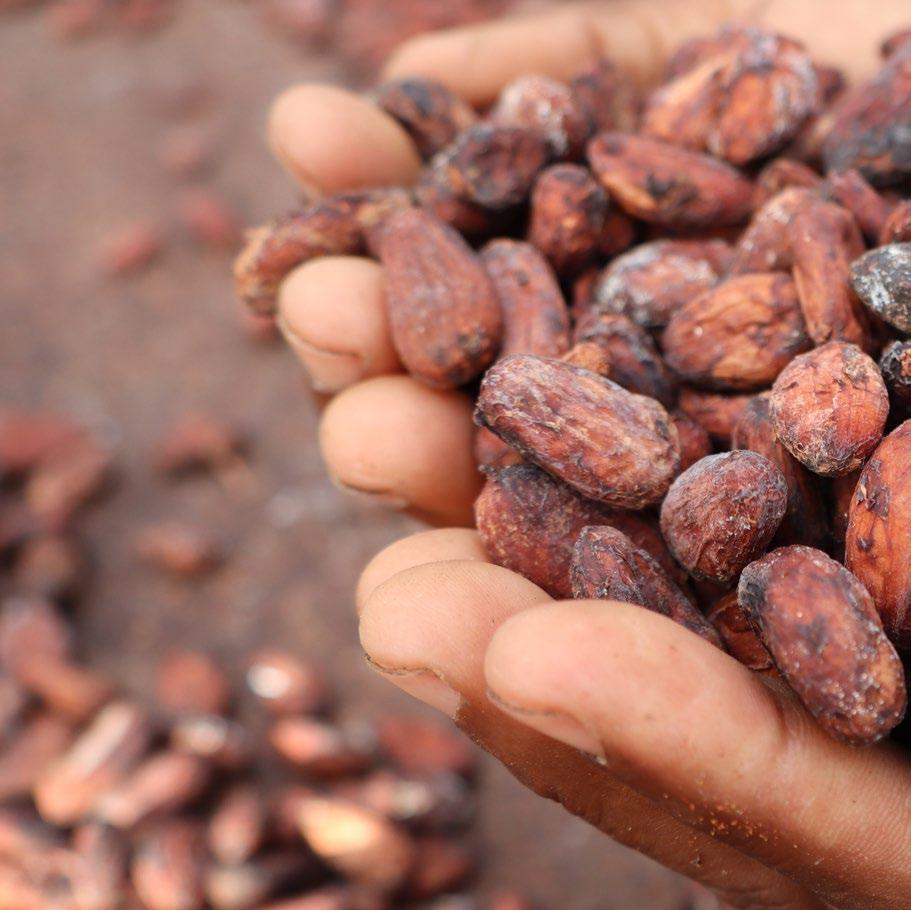
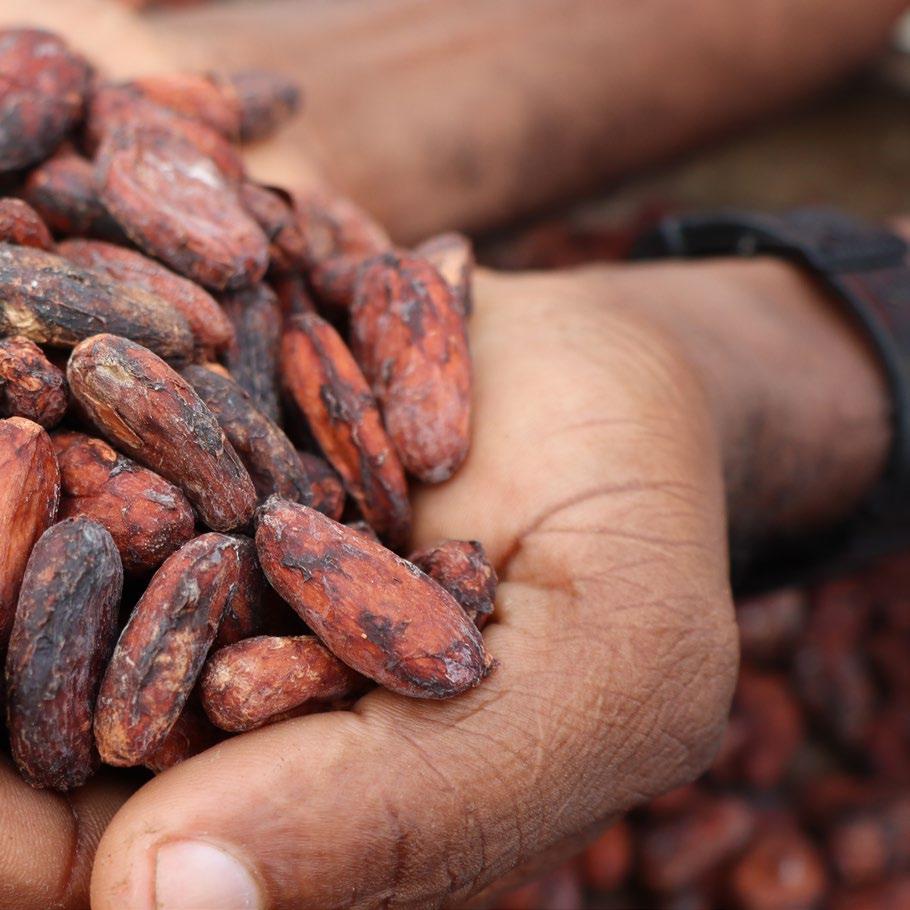
Created in 1951 as a private institution of public utility, IMVF is a foundation for development and cooperation that started its activity as a NGDO in 1988, in São Tomé and Príncipe. From the 90s onward, we have expanded our action to other countries, mainly Portuguese Speaking Countries and broaden our scope of intervention. In 2017 we widened again our sphere of activities to new geographies in Africa and Latin America as well. The results achieved have turned IMVF into a key stakeholder in Development Cooperation, Global Citizenship and Development thinking.
The promotion of human dignity, which includes equal rights and opportunities and justice for all, improving the welfare of the most vulnerable populations, thus fighting against exclusion, and contributing towards a more sustainable planet, as a cornerstone to ensure good living conditions for present and future generations. This is the framework of what we do and how we do it.
Assuring best practices and strengthening communities, public entities and civil society regarding the respect of values and principles such as solidarity, gender equality, sustainability, accuracy and transparency are at the core of our work. Working in close cooperation with our partners in Development, alongside with the commitment and motivation of about 250 staff workers, of which more than 90% are involved on field work, have ensured the quality and relevance of our actions.
We actively contribute towards sustainable development and human dignity by designing, implementing and collaborating in projects and activities in a diverse range of areas.
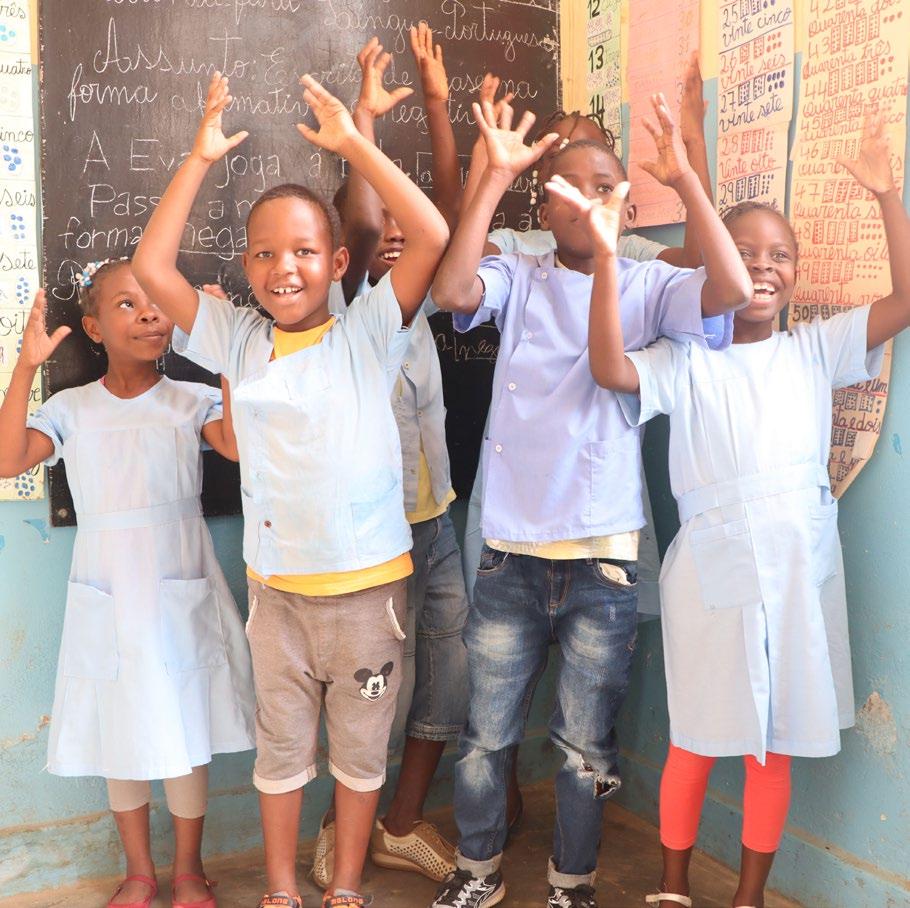
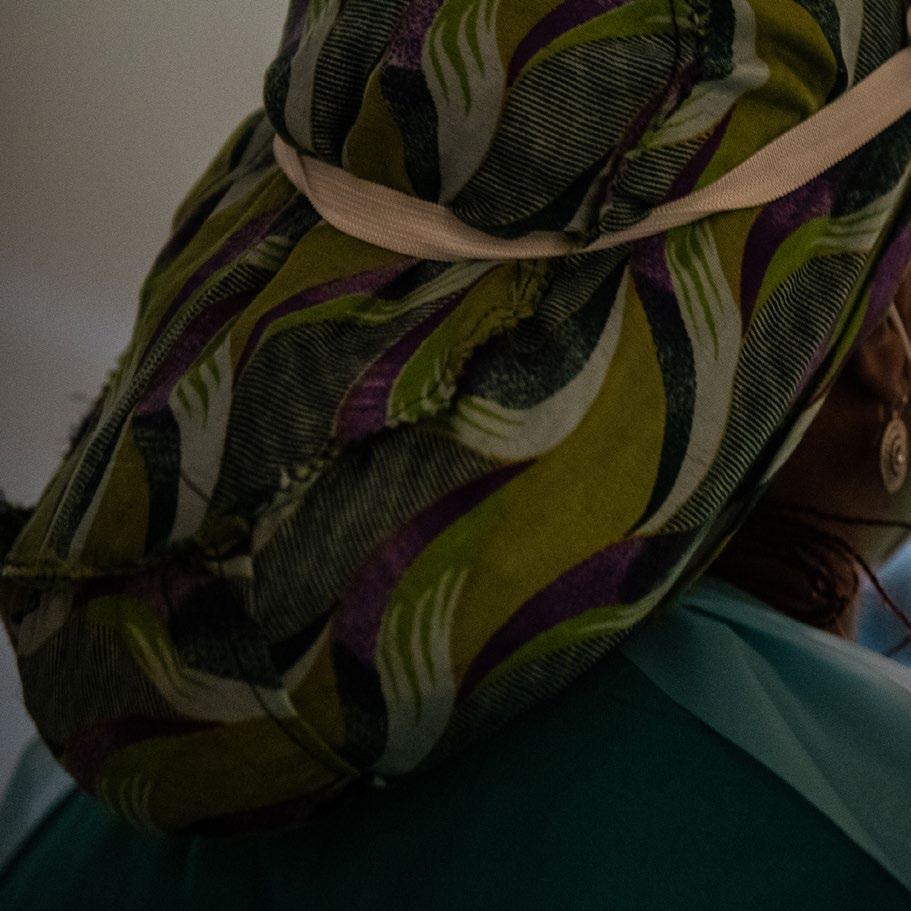
This
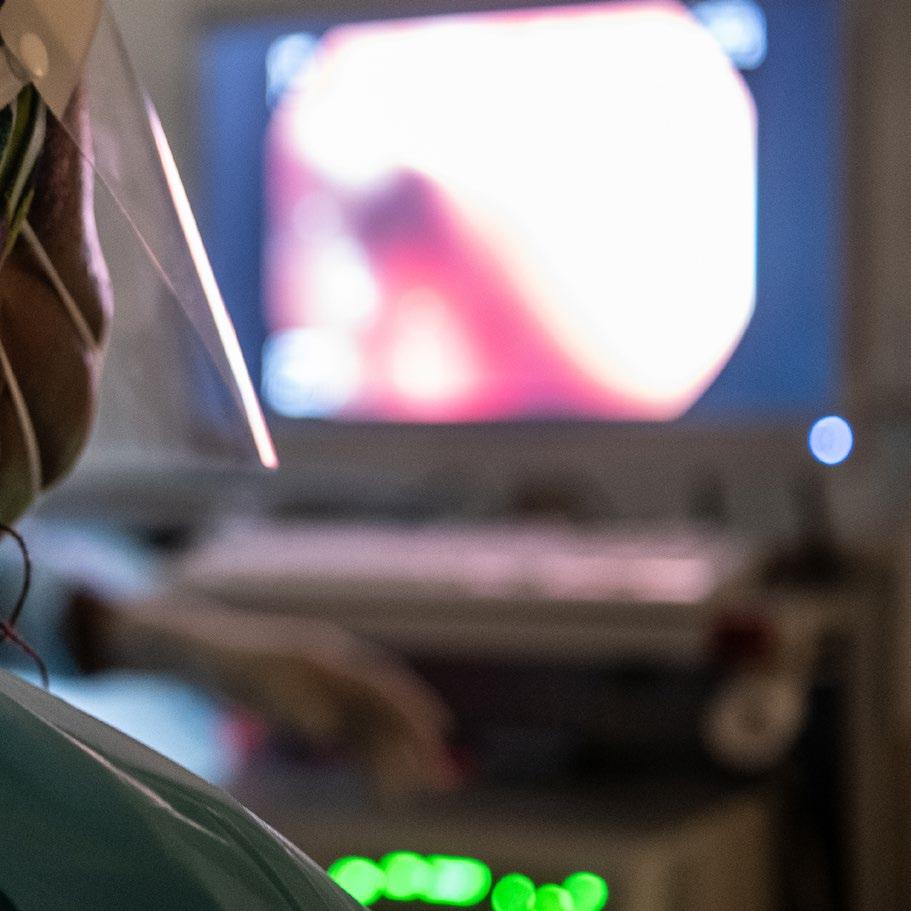
one
the
intervention areas
the importance
JAN 2021 –
Promote sustainable and quality specialised healthcare and telemedicine availability.




Direct: around 1,282 San Tomean National Health Service health professionals (doctors and nurses) receiving in-service training during specialty missions and through telemedicine; two doctors benefiting from long-term specialized training in Portugal.
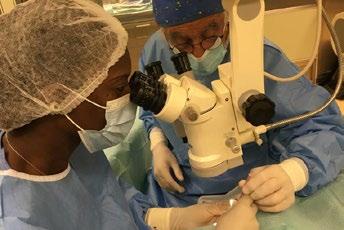
Indirect: the entire San Tomean population, as National Health Service beneficiaries.
Camões, I.P. and DGS - Directorate General
Health of Portugal
Ministry of Health of São Tomé and Príncipe
Associação Marquês de Valle Flôr (AMVF)
The project helped the São Tomé and Príncipe National Health System (NHS) to respond to existing and emerging needs in the health sector, in terms of specialised care and telemedicine. In a digital and remote assistance committed world, particularly in a pandemic context, this action promoted the essential expansion in equipment and infrastructure of the telemedicine service, upgrading it, in order to respond to the sector’s demands.
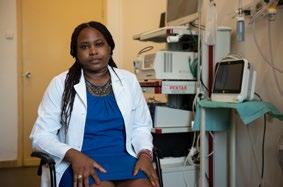
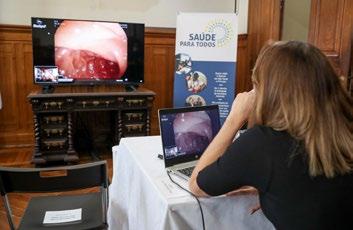
The construction, equipping and operationalisation of the Dr. Ayres de Menezes Hospital gastroenterology service was completed, a project that began in 2020, but was officially inaugurated this year. Despite the COVID-19 constraints, the acquisition and availability of medicines, reagents and clinical consumables for the provision of specialised care were ensured.
The São Tomean NHS capacity increase was achieved through the in-service training of São Tomean professionals during speciality missions, telemedicine sessions and distance learning platforms. In what concerns health professionals, two doctors concluded their ophthalmology and obstetric-gynaecology specialisations in Portugal. A nurse was also trained in gastroenterology techniques, and a São Tomense doctor is still pursuing specialised imagiology training in Portugal.
Finally, it should be noted that on December 19th, as part of an official visit to São Tomé and Príncipe, the Portuguese Prime Minister, António Costa, visited the project together with the Minister of Defence, João Cravinho, and the Secretary of State for Foreign Affairs and Cooperation, Francisco André. The Prime Minister posted on his Instagram account: “The Health for All programme remains emblematic in the Portugal-São Tomé and Príncipe cooperation relations. One of the most important Portuguese Cooperation programmes is held by the partnership between Camões, I.P., the Ministry of Health of Portugal, the Ministry of Health of São Tomé and Príncipe and IMVF.”
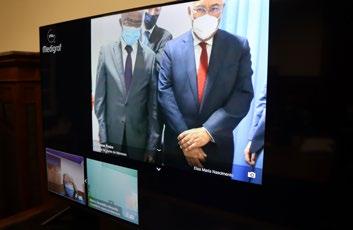
Lagchar Barreto, gastroenterologist, Dr Ayres de Menezes Hospital, São Tomé
“Health for All has offered me the opportunity to fulfill my greatest dream which is to be a gastroenterologist and to work in São Tomé and Príncipe. This project provides us with the opportunity to interact with highly qualified Portuguese medical specialists so that we can better serve the population at a national level.”


*Consolidated amount of the 3 contracts currently in force that this programme comprises

Ensure a better access to quality healthcare for pregnant and puerperium women (up to 45 days after childbirth) and children under 5 years of age in Guinea-Bissau.

Direct: 319.771 children under 5 years of age, 413.821 women of reproductive age as users of the National Health Service and 1.200 health professionals in the 132 health areas of Guinea-Bissau. Indirect: the entire population of Guinea-Bissau.
European Union and Camões, I.P.
Ministry of Public Health of Guinea-Bissau (MINSAP-GB), United Nations Children’s Fund (UNICEF) and Entraide Médicale Internationale (EMI)
Throughout 2021, the pandemic context together with a new cycle of political-administrative instability, further compounded by long periods of public administration strikes (including in the health sector), increased the constraints and challenges to IMVF action within the scope of PIMI II.
Despite this fact, and thanks to a clinical, logistical and administrative team of more than 85 professionals contribution, Cuban, Portuguese and national citizens (the majority), the Institute maintained its intervention in terms of clinical training, provision of medicines and distribution and installation of medical-surgical equipment in 132 health structures throughout the country. The project’s final year was marked by a maternal and child healthcare sector strategic reflection in the country. The “Maternal and Child Health
in Guinea-Bissau” II National Forum enabled a wideranging debate on the positive progress achieved, good practices, lessons learned and future prospects.
After reaching an agreement with MINSAP-GB, IMVF will continue its intervention, as a reference actor in the healthcare sector, with the implementation of a World Bank-financed PIMI II transition project (Maternal and Child Health Services Strengthening Project in GuineaBissau - PSMI). This nine-month intervention will provide a bridge to a new European Union-funded programme in Guinea Bissau’s health sector in 2022 (PIMI III). The PIMI III implementation, based on previous experience, will reinforce partnerships investment in a perspective of ownership and gradual skills transfer to MINSAP-GB and other national health structures.
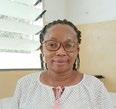
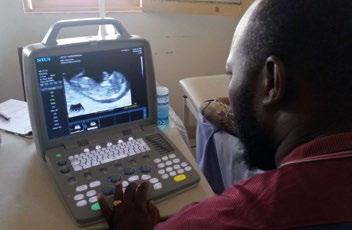
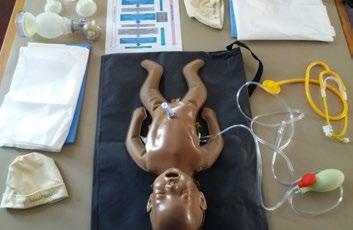
“This Programme had a great impact on the population, not only because it allowed to improve assistance quality of child and pregnant woman care through continuous and in-room training, but also by offering free medical care, medicines and complementary diagnostic tests to all pregnant women, puerperal women and children under five years old, and furthermore by reinforcing medical equipment, thus avoiding many evacuations to central hospitals, with high costs for families.”
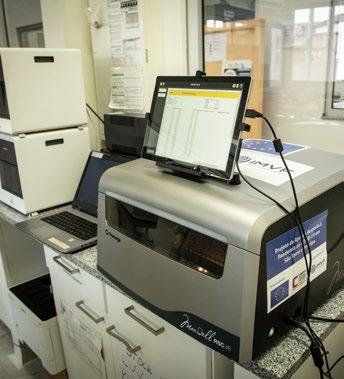
JUL 2020 – JAN 2022

Provide emergency support and strengthen the intrinsic capacity of the National Health Care System of São Tomé and Príncipe to prevent and control the COVID-19 epidemic in the country.
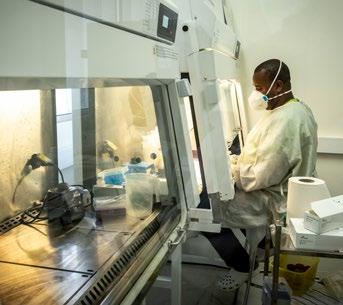
European Union and Camões, I.P.
Ministry of Health of São Tomé and Príncipe

Direct: São Tomé and Príncipe’s healthcare professionals.
Indirect: São Tomé and Príncipe’s population.
In order to prevent and control the spread of the pandemic and thus improve the lives of the population, the support action to São Tomé and Príncipe’s National Health System in fighting COVID-19 is critical.
The 2021 activities were built on two support pillars: (i) the institutional management coordination of the pandemic; (ii) the clinical/hospital and laboratory technical management of COVID-19 cases and health professionals’ capacity building. The action has contributed to a more effective response to the pandemic, with quite favorable results. Up to March 8th 2022, there were 5,934 positive cases, 5,862 of which recovered, 0 new cases, 0 critical cases, 0 cases in social isolation and surveillance, and only 72 deaths (the initial WHO forecast was 12,500 deaths), that is, 14 deaths per 1 million inhabitants, which, compared to Portugal or Cape Verde, represents a higher performance in terms of effectiveness.
This project has significantly contributed to these results through the developed actions, such as, information and health education, provision of individual and collective protection means, laboratorial diagnosis chain support, assistance improvement through the provision of a wide range of equipment (monitoring, hemodynamics, oxygen therapy, etc.) as well as medicines and consumables against COVID-19 and associated diseases. The 62 national board executives and 50 doctors and nurses (six of them in Portugal) three months training, as well as 12 laboratory technicians, should also be mentioned.
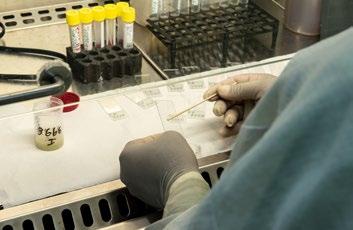
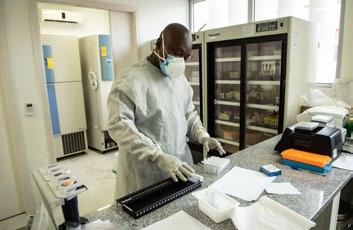
“In São Tomé we don’t have any intensive care physician, but by attending the training we have gained great experience to manage critically ill patients during our daily routine, both in the infirmary, where I work, and in the emergency room, where we receive most of the critically ill patients.”
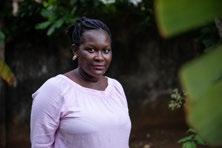 Francelina Costa, General Physician at Dr. Ayres de Menezes Hospital and “São Tomé and Príncipe COVID-19 Management” training participant
Francelina Costa, General Physician at Dr. Ayres de Menezes Hospital and “São Tomé and Príncipe COVID-19 Management” training participant

Our intervention reflects our commitment towards a development process that respects the liaison with national authorities and fosters local, individual and institutional skills. The most relevant action in this sector has been taking place in São Tomé and Príncipe, where our actions support the public authorities responsible for Education. In recent years, our actions have covered around 400 teachers and other education professionals and indirectly reached almost 20,000 students.



Contribute to raise the professional qualifications and skills of the secondary school teaching staff; promote the development of institutional capacities of the University of São Tomé e Príncipe (USTP) and the Ministry of Education and Higher Education (MEHE); and contribute to improving the education sector’s functioning, especially regarding school administration and management.

MEES managers and technical officers; educational supervisors; discipline delegates; school managers; education inspectors; secondary school teachers; USTP teachers; Ongoing and In-Service Training Office; Directorate of Secondary and Technical Vocational Education; Directorate of Educational Planning and Innovation; General Inspectorate of Education, and secondary school students from the Autonomous Region of Príncipe (grades 10 to 12).
Camões, I.P.
Ministry of Education and Higher Education of São Tomé and Príncipe (MEHE), Associação Marquês de Valle Flôr (AMVF), University of São Tomé and Príncipe, University of Aveiro (UA) and University of Évora (UE)
The “Legal Framework of Professional Qualification for Teaching - Initial Training” approval, in 2021, contributed to São Tomé and Príncipe’s educational system’s improvement.
“São Tomé and Príncipe Education Research Network” was created with about 30 members (USTP teachers, MEES educational agents, UA teachers and members of the PAISE-STP team), and five research projects in various areas are being developed. The diagnosis and intervention plan for improving USTP’s academic services were also completed, with the EU’s technical assistance.
This year, over 174 secondary school teachers (7th to 12th grade) of Portuguese Language, Mathematics, Natural Sciences/Biology and English benefited from the four continuous and in-service training programmes.
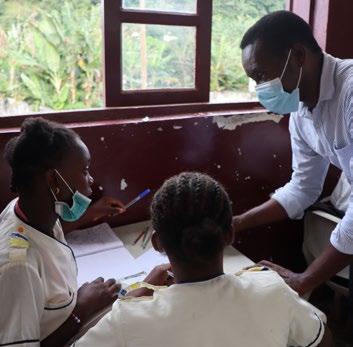
The programme continued to collaborate with the multi-sector groups to draft a legal regime proposal for continuous and on-the-job training, improvement of pedagogical supervision, management, administration and evaluation of secondary schools.
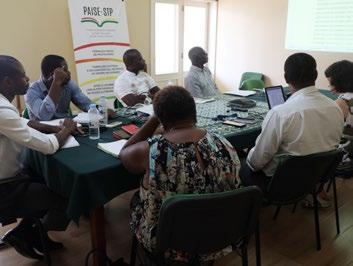
In the Autonomous Region of Príncipe, the in-service training pilot programme in a co-teaching regime for Portuguese Language and Mathematics teachers was initiated. In addition, teaching support for these subjects (from 10th to 12th grade) was also continued.
Adelson Fernandes, Trinidade School 7th grade math teacher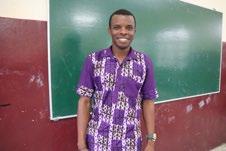
“Teacher training helps us improve our teaching. We have teacher’s assistance during classes and I can say that, with this assistance, the classes are more effective, the students learn the subjects better.”
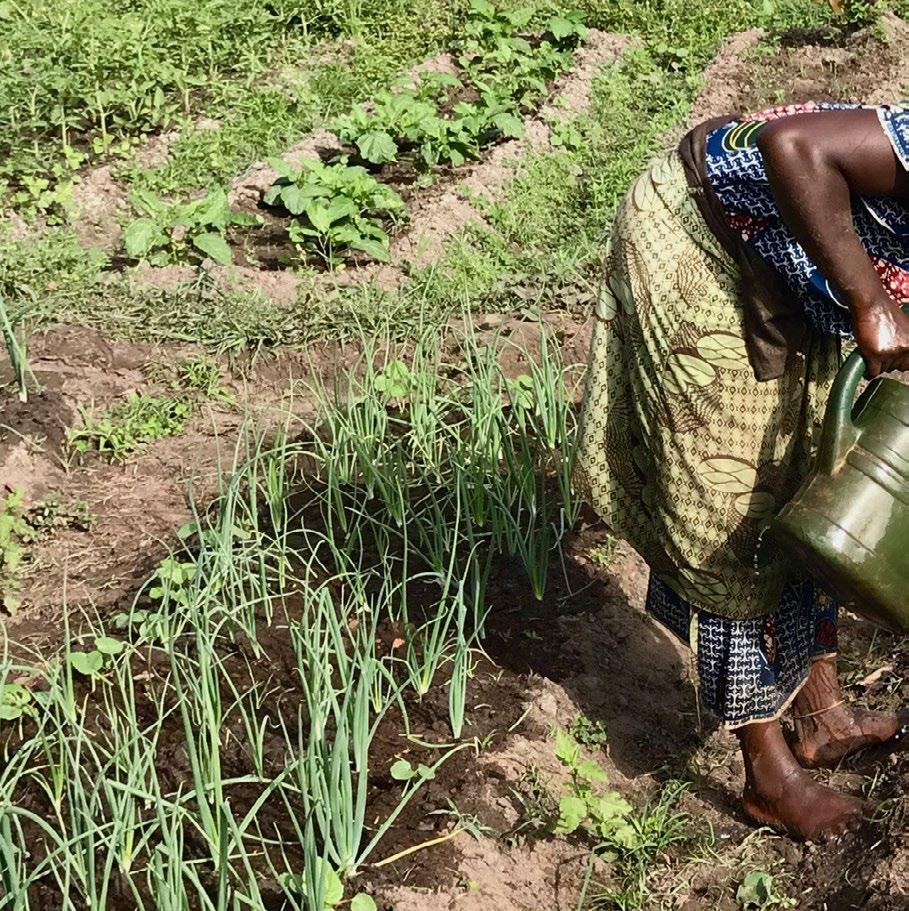
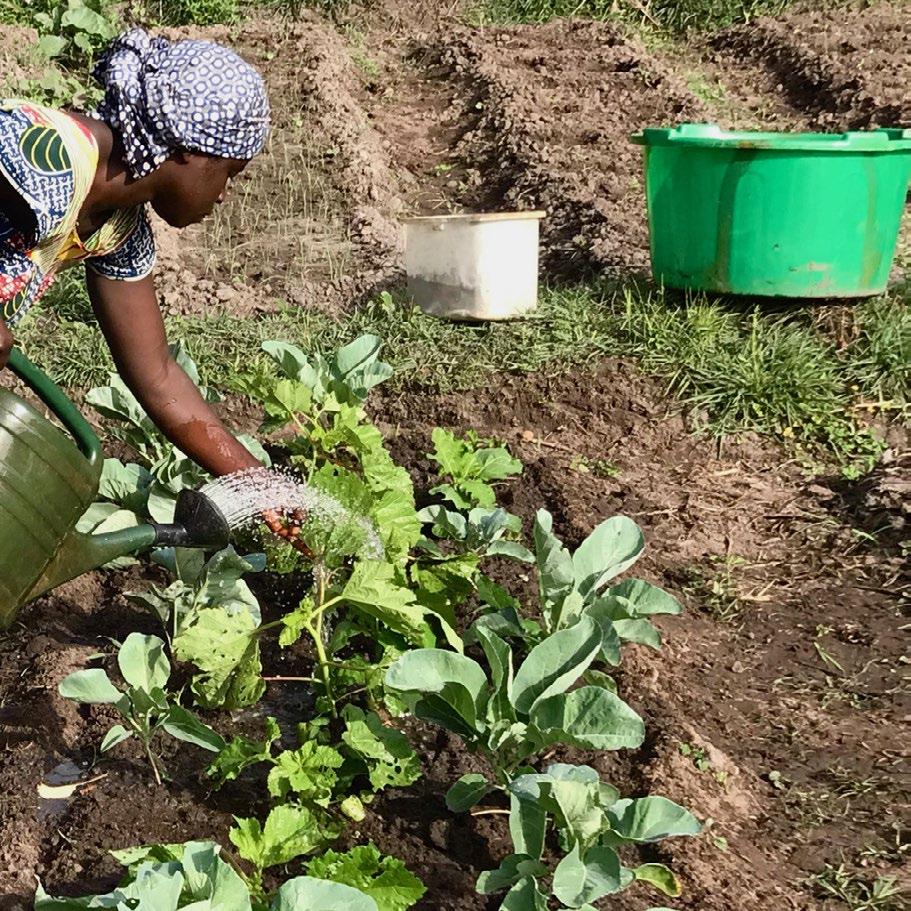
Bafatá, Biombo, Cacheu, Gabu, Oio and Bissau Autonomous Sector
2019 – DEC 2023
Contribute to structuring Guinea Bissau’s poultry industry, promoting opportunities for socio-economic development.





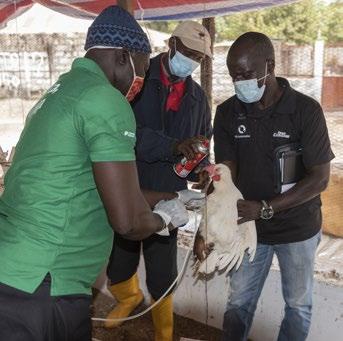

319,868 (Global: € 1,862,182)
European Union
Mani Tese, Asas do Socorro and University of Turin
Direct: local micro, small and medium-scale community or family businesses; poultry professionals (individuals, companies, and associations); production centres and their associates (universities, research centres, agricultural producers, etc.); technical officers of the participating State institutions; as well as veterinarians and para-veterinarians. Indirect: the population of the target regions, in particular women.
School of Agriculture of the Polytechnic Institute of Bragança
The project has been supporting Guinea-Bissau’s small poultry farmers through a global intervention in all stages of the poultry industry. Companies, producers, entrepreneurs, and associations have been mobilized, focusing on the main production factors supply (chicks, feed, layers), health coverage (vaccination, pharmacies, technical assistance), professional training, and community mobilization through breeders’ and paraveterinary associations, among others.
In 2021 the poultry farming for young entrepreneurs 2nd training course took place at the Quelele School of Arts and Crafts, with the aim of sustainably increasing micro, small and medium-sized poultry industry companies. The course was held from April 19th to 30th - of the 24 trainees, 21 finished the course - with an average age of 34 years old, 46% being women.
Tenders were launched for the opening of four veterinary pharmacies (to be activated in 2022). Two vaccination stages against Newcastle Disease and Avian Influenza were carried out in seven regions for 32,828 birdsthe average size of small family poultry farms is 54 birds. Technical, sanitary, and zootechnical assistance was provided to CEDAVES and Piu Piu Awara social companies and to 90 poultry farmers from the Family Poultry Farming Programme (PAF).
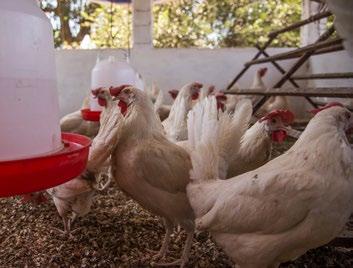
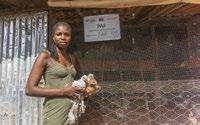
“Raising chickens is everything for me, it’s my job and that’s what I want to keep on doing to earn my money, to support the house and help my family, my daughter and my nephews at school (...). It’s better to breed in our country to supply our markets, have fresh products, boost our economy and improve our lives.”


Strengthen the participation and capabilities of civil society for discussing and monitoring the implementation of public policies that impact on natural resources’ access and management, on poverty reduction, and on food and nutrition insecurity.

Direct: 30 technical leaders of civil society organisations; 20 managers and technicians of agricultural cooperatives and family farmer’s organisations; 30 farmers, artisanal and extractive fishermen (in particular, young people and women); 46 managers and technical officers of national public administration and the Autonomous Region of Príncipe, in the food security and nutrition sectors; and 50,000 people, mostly young people and poor women living in rural areas.

Indirect: the population of São Tomé and Príncipe, estimated at around 190,000 residents.
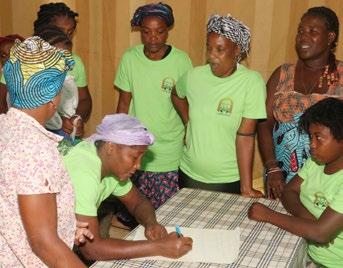


European Union and Camões, I.P.
Association for Cooperation and Development (ACTUAR-ACD) and Association for Agricultural Development and Environmental Protection (ADAPPA)
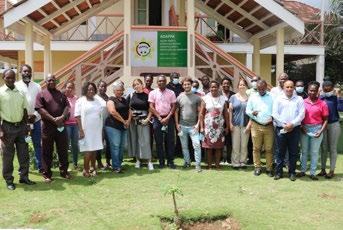
This project aims to contribute to São Tomé and Príncipe sustainable development and food and nutritional security, through strengthening and empowering the civil society, placing it in relation with public authorities in order to develop inclusive public policies regarding family agriculture, as well as the rural women’s role in the defense of the agro-ecological production.
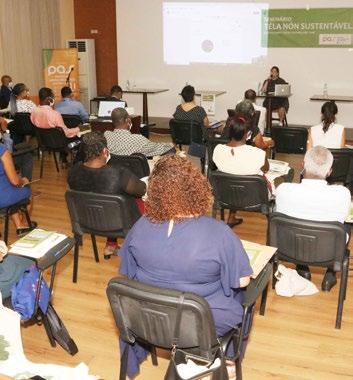
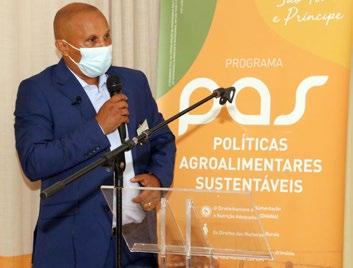
In 2021, 13 proposals for rural associations managed by women were selected and contracted. The project will support pilot micro-initiatives in various activities with 120,000€, from short-cycle animal breeding, to fishing, vegetable production and products processing such as honey. In addition to the financial backing, support will be given in training and technical assistance, as well as in the study of more innovative initiatives.
The study “São Tomé and Príncipe in the construction of an agroecology national pact”, which advocates 100% organic agriculture, was published by the project. This study is a useful document within the SIPAM (World Agricultural Heritage Important Systems) application, in the framework of which a civil society dialogue session was held. The application, which is being prepared by the country, intends to propose the entire national territory as SIPAM, placing the agroforestry shade-grown cocoa system at the center of the process, also encompassing the role of subsistence agriculture and non-wood forest products provided by primary forestry.
Maria de Fátima Silva, Chairwoman of the United Women Farmers Association (AMAGRU-STP)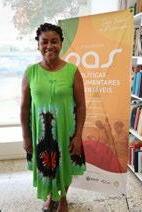
“The lack of conditions in order to preserve the unsold market products leads to food waste; also the lack of product transport to the local markets doesn’t allow them to be sold on time, which consequently leads to their waste. I emphasize the importance of persistently seeking support for rural women to ensure that their rights are at the center of discussions.”

Provinces of Huambo, Malange and Bié
2019 – SEP 2021
Promote the productivity, production and market access for 50.000 eligible beneficiaries, currently engaged in agricultural production; rehabilitate irrigation systems and promote value chain activities for a set of selected crops; promote capacity development of 600 technical officers of the Ministry of Agriculture and Forestry (MINAGRI).

Direct: 50.000 agricultural producers from 80 ‘comunas’ (administrative units) of 25 municipalities in the Huambo, Bié and Malange provinces; 600 technical officers of the Ministry of Agriculture and Forestry of Angola. Indirect: 175.000 agricultural producers.
(Global: € 2,484,309)
World Bank and Institute of Agricultural Develop ment of the Ministry of Agriculture and Forestry of Angola



PARTNER
CI International
The rural development key elements are the improvement and increase of productivity of the family sector.
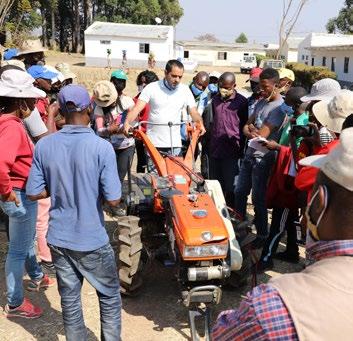
The project is the component two of the “Family Farming and Marketing Project” - MOSAP II, implemented to ease the business farming access to adapted techniques and services in order to increase incomes. In 2021, 277 subprojects were initiated, 207 completed and 54 were partially executed (marketing and Agricultural Service Centers). 13 perimeters were built or rehabilitated to provide access to irrigation water for 1,324 vegetable, rena potato, sweet potato and other crop producers (366 women) - indirectly benefiting 6,320 people. 129 producers (16 women) were trained in irrigation water management and land legalisation. About 5,000 producers were trained in vegetable growing techniques, in the use of fertilizers and pesticides in potato, corn, bean and vegetable crops, in the use of hand and pedal pumps for irrigating fields, in seed production (corn, rena potato, short-cycle canary bean and cassava cuttings). 191 producers (42 women) were trained in specific subjects: agriculture as a business; use of agricultural equipment; planning the agricultural campaign; use of agrochemicals and seed production. 1,578 producers (563 women) were given support commercialization in the formal market, having sold t of products with revenues of 240,6 million kz

“I took on the position of agronomist in order to support the production increase and marketing of cassava, corn, beans, potatoes, cabbage, and tomatoes in Malanje Province. I also participated as a trainers’ trainer in the Farmer Field Schools. I produced rural extension tools such as posters, leaflets and production manuals. I particularly highlight the development of a mass sms rural extension tool.”
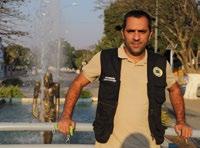
To empower the sector’s actors and create the conditions to improve quality and sustainably increase the traditional export sectors’ production, in order to consolidate their access and recognition in foreign markets.

European Union and Camões, I.P.
Direct: 3,000 producers of cocoa, coffee, pepper and coconut, 15 rural entrepreneurs, 5 cooperatives and 85 producers’ associations, 40 employees and managers from MAPDR, CADR and CIAT central services, and 500 people in sociocommunity initiatives.
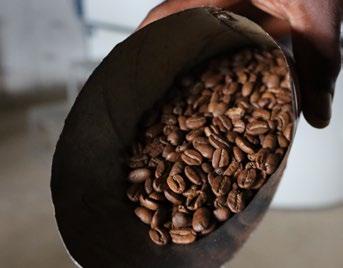

Indirect: 12,000 people, family members and rural communities from which direct beneficiaries are drawn.

Agronomy Superior Institute (ISA) / Center of Tropical Studies for Development (CENTROP), Ministry of Agriculture, Fisheries and Rural Development (MAPDR), producers and producer organizations, Center for Agricultural Research and Technology (CIAT), Rural Development Support Center (CADR) and its Regional Delegations, National Service of Intellectual Property and Quality (SENAPIQ), National Institute of Statistics of São Tomé (INE), National Institute for the Promotion of Gender Equity of São Tomé and Príncipe and the Agricultural and Livestock Technical Improvement Center (CATAP).

The action’s intervention strategy is based on a systemic vision of the export sector, from a direct production reinforcement and export crop quality and marketing promotion, to the system’s resilience promotion as a whole - connection to the producers’ socio-economic conditions, environmental sustainability, greater attractiveness of the rural world and to the promotion of agroforestry systems and local market diversification and innovation.
In 2021, several activities were initiated, namely in the coffee sector, with the nursery production of 2,000 plants to be distributed in the demonstration fields; in the coconut sector, with five associations formed and a nursery installed with 6,305 seeds; in the cocoa sector, with the construction of seven solar cocoa dryers and four warehouses and fermentation boxes, and finally in the pepper sector, with the construction of nine solar dryers and the construction contract for a pepper processing center. To boost their production and commercial capacity, two fundings were allocated to CECAFEB (Organic Coffee Export Cooperative) and CECAQ11 (Quality Cocoa Export Cooperative 11) cooperatives
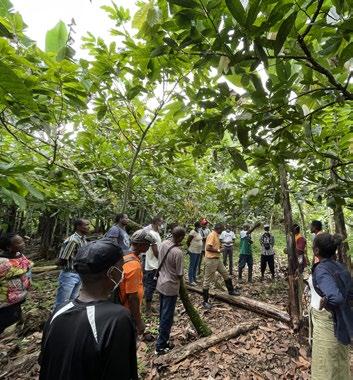
“I am very happy with the project intervention at the Pepper and Vanilla Export Cooperative (CEPIBA). It arrived in very good timing since the cooperative is in need of renewing some of its essential infrastructures in order to do a good job, to have a quality production and storage allowing us to meet the market expectations. Through this support, both farmers, cooperative workers, and customers will be more satisfied.”
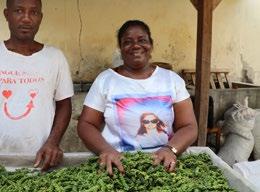
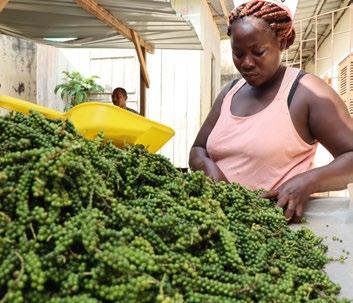
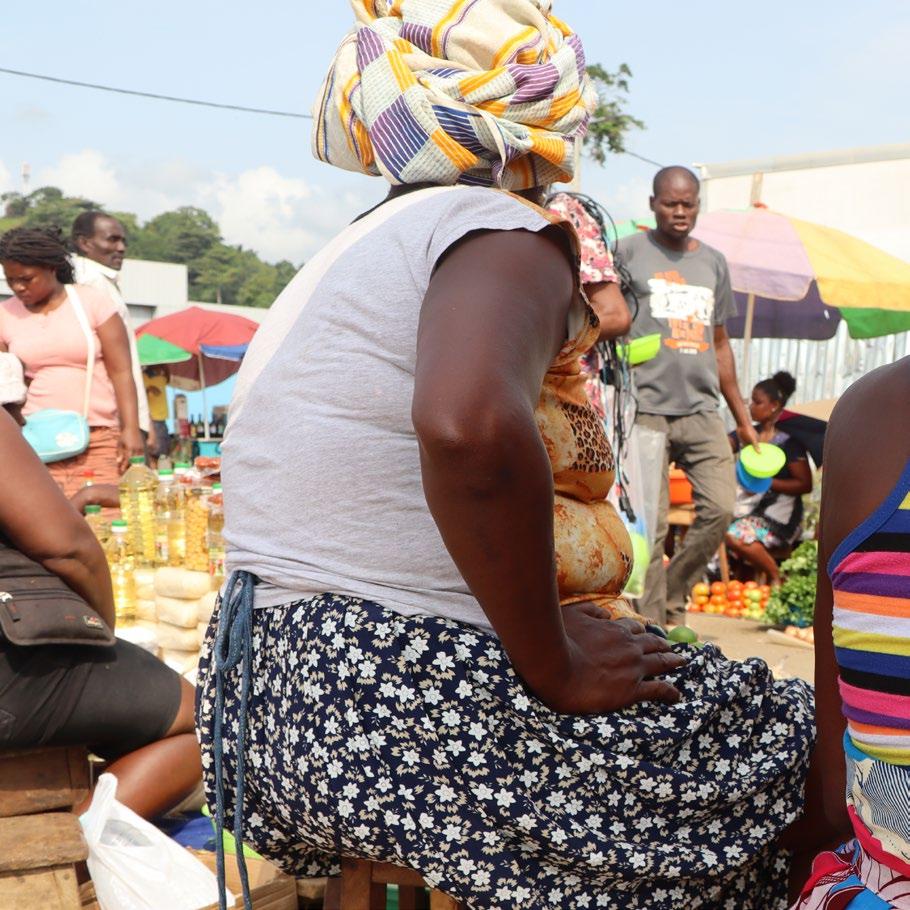
The empowerment of civil society is crucial for the development of fairer, more democratic and peaceful societies and consequently, also to statebuilding. The promotion and support of civil society activities, especially NGDOs, citizens’ organisation platforms and other non-state institutions, therefore reflects a cross-cutting concern of our action in several countries. Most of our projects have been implemented in Angola, Mozambique, Guinea-Bissau, East Timor and Brazil.
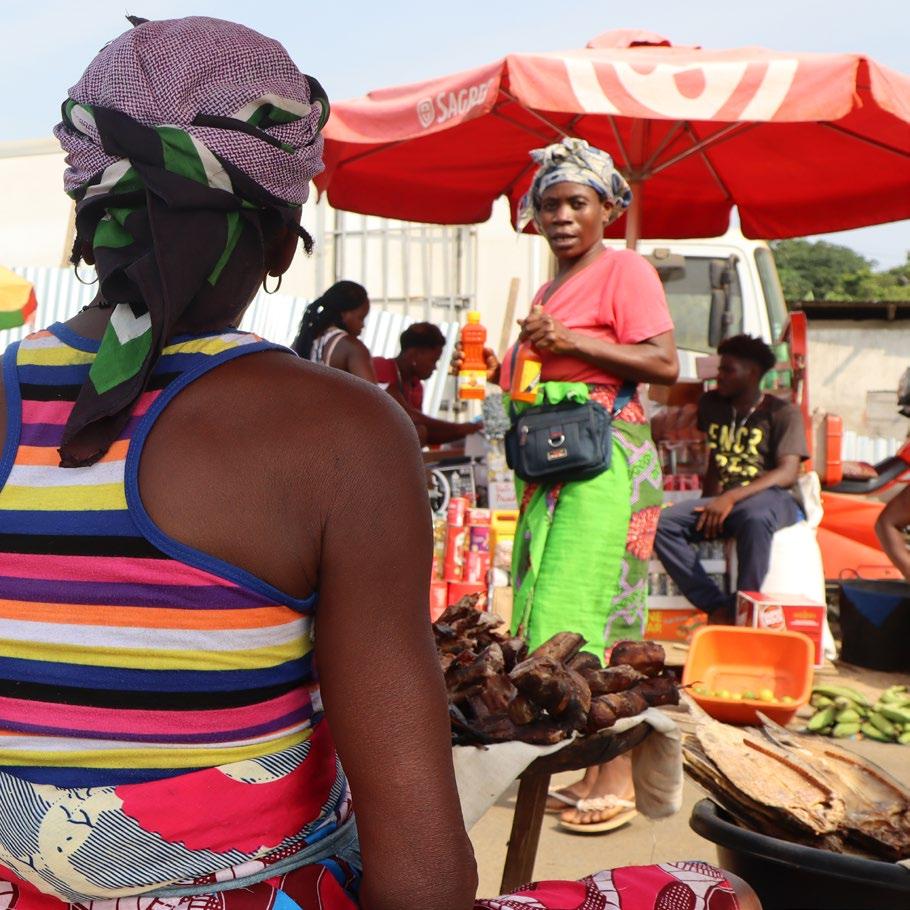

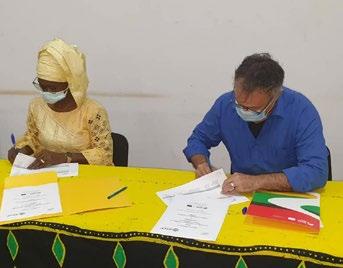
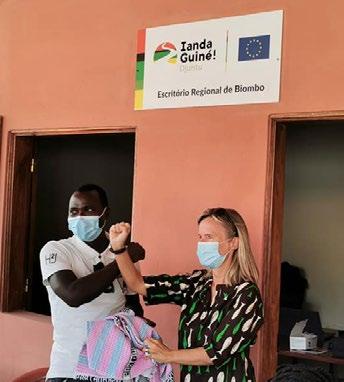

Ianda Guinea! Djuntu’s main objective is to turn the Guinea-Bissau citizens into leading actors in the collective problems’ solving. To this end, it created Djuntu Method, a civil society capacity-building methodology especially oriented towards community-based organizations and their communities.
In 2021, under the scope of the Permanent Support Office (GAP), 121 projects were funded, covering all the country’s regions and in several intervention areas.
The action included the research analysis development and publishing, a knowledge update on the current legal framework for CSOs as well as its review recommendations, and two other studies have been initiated for further publication: (1) CSOs’ diagnosis on the participation, influence, and monitoring of public policies; (2) Bissau-Guinean diaspora’s Civil Society Organizations mapping.
In addition, 12 radio magazines were produced and launched, a video coverage was produced and publicly presented, a documentary repository was created, a youth exchange was promoted, four regional djumbais (conferences) were held, as well as a national djumbai

As part of Bissau-Guinean diaspora’s involvement, an online platform for clustering was released, two zoom learning and sharing meetings were held, and a training session on Project Cycle Management and Funding Line Applications was held.
“As a Young Leader for Change, trained by the Action, the work that touched me the most was the one we developed in the Guinea-Bissau-Sweden Friendship School, attended by more than 200 children. Neither the school nor the residents of the neighborhood had piped water, making it necessary to cross streets to get water, risking the children getting run over and expending a lot of physical effort. We were able to solve this problem with 50,000 CFA, which we used to buy the plumbing materials. With the community’s willpower, the problem resolution turned out to be a participative and inclusive event.”

Integration and inclusion promotion of children and youngsters with neurological disabilities.
Direct: 440 children and youngsters with neurological disabilities from Santiago Island and their families, beneficiaries of the following institutions: Colmeia, Acarinhar, Diferentes But Not Indifferentes, Down do Amor and Disabled People’s Associations Federation (FECAD); 80 householders/informal carers of these children and youngsters, mostly women, through the socio-economic integration support; 4 reference associations in this sector, benefiting from thirdparty support; the Care and Rehabilitation Centre for disabled people; 12 health professionals in the physiotherapy field; 30 ministries and municipalities’ technicians; families, residential communities, school community and general population.
Indirect: all children, youngsters and adults with neurological disabilities.


European Union, Camões, I.P. and ISS Mais um Sorriso Foundation (Entrepreneurship Axis 4)

Support Association to Self Promotion Initiatives (SOLMI) and Disabled People’s Association Federation (FECAD)
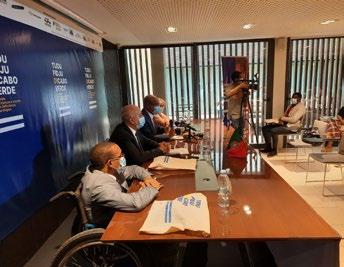


The awareness campaign Tudu Fidju Di Cabo Verde was launched in order to help reduce prejudices, stigmas and social distance, and to provide information about the solutions, behaviors and mechanisms that can be created and promoted for real inclusion, so that families and caregivers become aware of the existing rights and opportunities for people with neurological disabilities and have at their disposal more support tools in their daily lives. This campaign was the result of a process which involved all of the project’s partner entities, beneficiaries and funders.
The project’s monitoring committee was set up, composed by the reference Ministries focal points (Health; Education; Family; Development and Social Inclusion; and Finance/IEFP) and the Cape Verde National Association of Municipalities, which, besides
monitoring the project’s activities, will develop an action plan for the coherence and harmonization of the various ministries’ instruments, for a better response to families, children and youth with disabilities.
The “Pediatric Rehabilitation and Development Approaches for Physiotherapists” training course was initiated in partnership with Alcoitão Rehabilitation Medicine Center, with 17 participants from several Cape Verdean islands. During this year two of the four training modules have already been conducted.


In 2021, 30 child and youth direct caregivers were supported. During the training sessions, they drew up their business and individual development plans, and were subsequently granted funding for their incomegenerating initiatives.
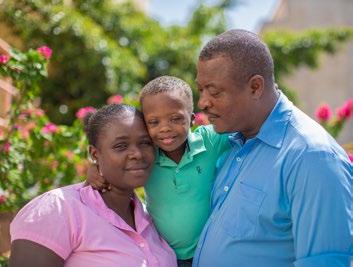
Dora Gamboa, “Pediatric Rehabilitation and Development Approaches for Physiotherapists” course attendee
“The training was an opportunity to learn and renew concepts, especially related to the ways to intervene. Module II was quite enlightening because, through clinical cases, we were able to see the practical application of previous concepts.”
Santo Antão, São Vicente and Maio Islands
To support, in a safe manner, the resumption of economic activity on the Santo Antão, São Vicente and Maio islands in order to mitigate COVID-19 pandemic effects on Cape Verde’s local economy.
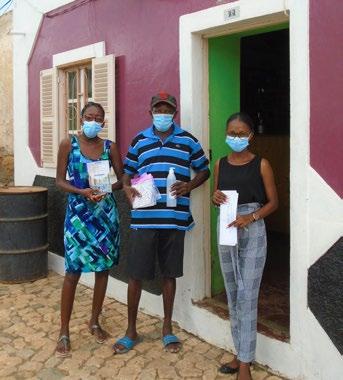

€ 30,350 (Global: € 101,220)

Camões, I.P.
ADPM - Mértola Heritage Defense Association, Porto Novo City Hall, Paul City Hall, Maio City Hall, Cape Verde Tourism Institute and Mundo Verde Association
Direct: tour operators (guides, travel agencies, restaurants and hotels); entrepreneurs, associations and indirect tourism linked cooperatives (agro-food and cultural agents); artisans; youth and women and their associations and cooperatives from Santo Antão and Maio islands.

Indirect: population of Santo Antão island and Maio island.
* IMVF became responsible for Mayo Island’s activities
In 2021, good practices dissemination training actions were carried out in catering, hospitality and agro-food processing, in order to ensure that entrepreneurs and their employees were aware of best practices and have access to the necessary resources to safely implement their activities. 2,000 face masks and 32 face shields, locally manufactured, were distributed, along with alcohol gel.
In order to ensure that companies, directly or indirectly related to tourism, adopt the appropriate measures, have support in identifying the necessary means, and are aware of the Government support lines available, technical assistance was provided to Maio island companies, in conjunction with Maio City Hall, Maio Health Delegation, and Maio Police Department.
Throughout the year an awareness campaign was implemented in order to promote Maio island as a safe destination: a video campaign was produced in partnership with the Sphaera Mundi NGO, a partnership was established with Voz di Djarmai community radio station for daily broadcasting of the campaign message, and COVID-19’s preventive measures were disseminated on social media.
Given the recognized importance of theater and street actions in raising community awareness, three local theater groups were also selected in order to raise awareness about the necessary COVID-19 prevention precautions measures.
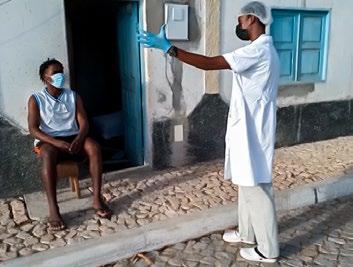
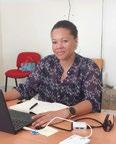
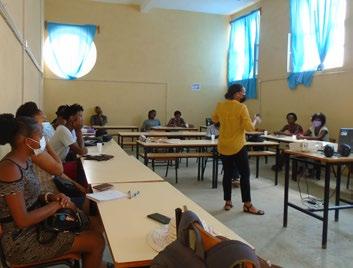
Julieta Dono,
“The Social Media Management training was important because, given the isolation due to COVID-19, it helped to understand how one could improve the promotion of products and services. We learned how to take better advantage of social media.”
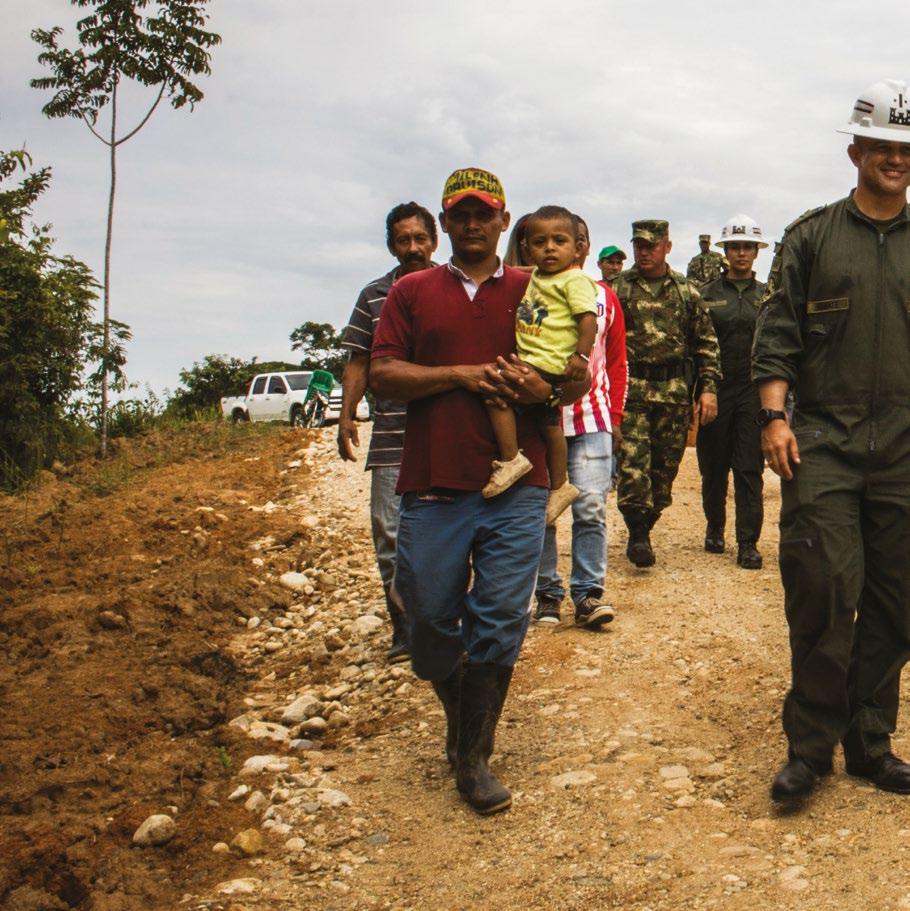
Forced migrations, as well as refugee streams and internally displaced people continue to pose a serious threat to peace and human dignity, to which multilateral institutions, national authorities and civil society organisations try to respond. These phenomena, that frequently occur or result in cases of high institutional fragility, have been addressed by our action, usually in countries on post-conflict situations. Angola and Mozambique are some of the countries where we work.
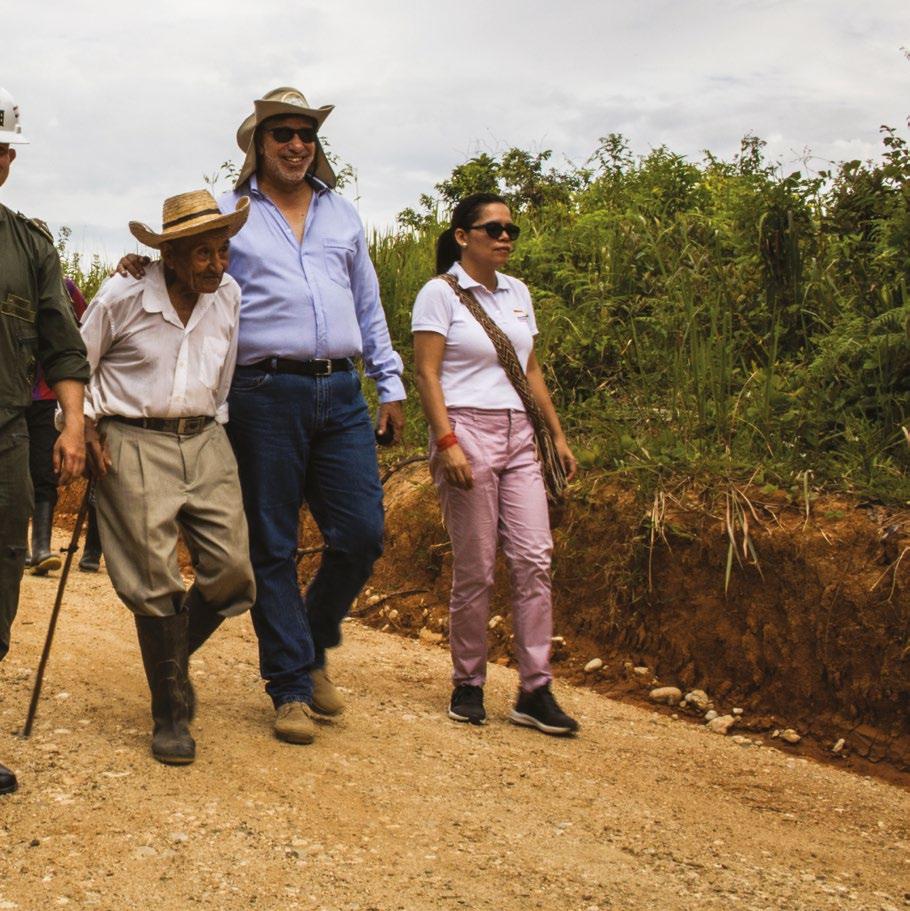

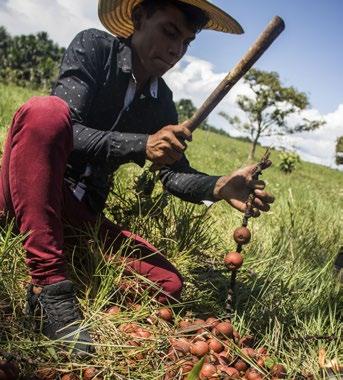
Caquetá Department, Municipalities of El Paujil, La Montañita and Doncello and Resguardo Indigena de Huitorá
JAN 2018 – JUN 2022
Together with the Colombian government, territorial entities and social organisations, promote the improvement of local capacity for the production, processing and marketing of fine and flavour cocoa and by-products in a profitable and competitive way, in territories affected by the armed conflict, and guided by the principles of environmental conservation, social inclusion and the consolidation of a culture of peace and legality.
Direct: 2,500 beneficiaries of the productive, social, reincorporation and infrastructure components.


Indirect: 6,500 beneficiaries of the productive, social, reincorporation and infrastructure components as well as their families and communities.

European Union Trust Fund for Peace in Colombia and Camões, I.P.

Red Adelco
In 2021, in the 4th year of the project’s implementation, and approaching the final phase, the previous years’ work was consolidated, aiming to ensure sustainability conditions for when the external funding and technical support comes to an end.
Regarding the productive component, agro-industrial transformation strategies were promoted, with standardized and competitive production as well as high quality standards in the four units built with the project’s support (Chocolate; Non-Wood Forest Products and Vegetable Oils; Essential Oils and Natural Cosmetology; Fruit Pulps), in the five cocoa processing centers, and in the two sugar cane/molasses mills (trapiche panelero). Marketing and commercialization strategies were developed, and six commercial alliances were established for products commercialization.
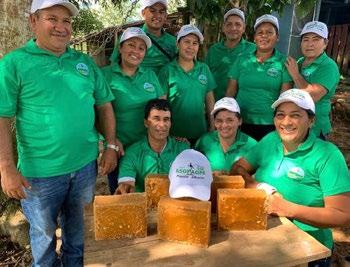
In terms of the social component, 31 Civil Society Organizations continued to be monitored on administrative, financial, legal, socio-business, and organizational issues, focusing on the responsible organizations for the management of the productive infrastructures.
In the infrastructure component, the majority of the project supported works were completed, with emphasis on 21 kms of road rehabilitation (reducing transportation time and costs for the population as for the flow of agricultural products) and three ProcarreteraCommittees, responsible for the rehabilitated roads maintenance, were strengthened.
In the reinsertion component, dialogue and reconciliation strategies were kept between FARC-EP former combatants and the surrounding communities, contributing to former combatants’ reconciliation, destigmatization and reintegration.
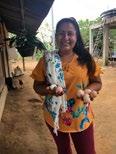
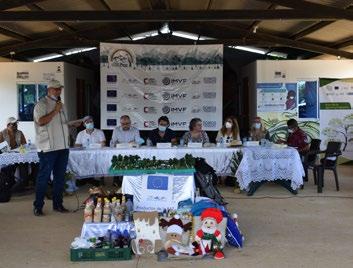
“In guerrilla times I had grenades in my hands, today, thanks to the Peace Process and the project support, it is eggs from my chickens, what I have in my hands.”
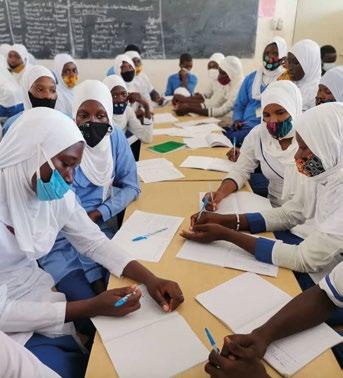
North Bank, Central River, Lower River and Upper River
JAN 2019 – OCT 2022
To boost economic development through fostering employment and income generation opportunities, and improve the attractiveness of rural areas and promote a favourable socio-economic environment for an effective and sustainable reintegration of former migrants.

TARGET GROUP
13,000 people in rural areas, in particular women and youth.


European Union Trust Fund for Africa

Camões, I.P., Agency for the Development of Women & Children (ADWAC), Alianza por la Solidaridad, United Purpose, International Trade Centre, Enabel and GIZ
After three years in The Gambia, 2021 has seen a significant increase in the number of individuals impacted by the project, with rural private sectors’ strengthening actions aimed at creating new jobs and increasing income. With the aim of breaking the circle of social and family pressure that sometimes pushes young people to leave, the project has followed a holistic approach by ensuring that the communities’ empowerment, through access to increased material resources, is complemented with access to information.
In 2021, 212 young people from rural areas received technical training in horticulture, poultry or small ruminant production and beekeeping, following cross-cutting training programmes that also promoted entrepreneurship training and professional counseling. Seeking to address the lack of training opportunities in rural areas, one of the factors leading to migration to urban centers, two training centers were established with the project’s support. More than 100 microenterprises were supported, 110 small agro-entrepreneurs received specific technical follow-up and in-kind support to strengthen their businesses. More than 600 small farmers, mostly women, were supported in order to develop incomegenerating activities.
Thousands of young people from 25 schools continued to benefit from improved school gardens for agricultural science lessons, and many dozens of young people and teachers had their first contact with agro-processing techniques. Sports activities continued to be supported by the project. An intensive awareness campaign on irregular migration risks
and opportunities in the country was carried out in 25 upper primary and secondary schools, 13 Koranic schools within the 32 community gardens that the project supports, as well as in 4 training centers. These actions were broadcasted by five community radio stations.
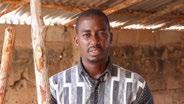
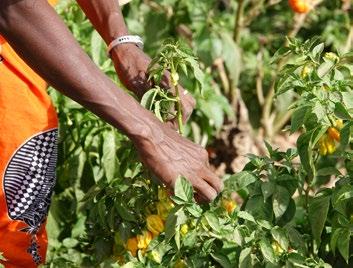
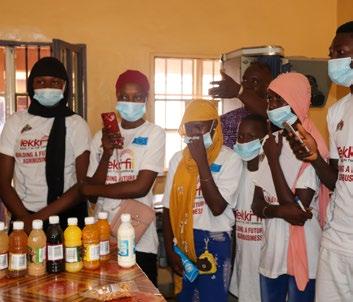
“The funding was a great support for expanding my business and making sure it is sustainable, as I was able to buy more animals and get better food and medicine. In the coming years I want to be the main sheep supplier in my region and in Gambia and I intend to employ more people, especially young people to tackle the unemployment rate and reduce illegal migration.”

The preservation of ecosystems, biodiversity and non-renewable natural resources, as well as the fight against climate change have been the focus of our action in this area. We have developed water supply and quality improvement projects, sanitation and hygiene, feasibility studies for capturing and better use of resources, amongst others, aiming to strengthen public entities and engage local communities in the countries where we intervene, particularly Cape Verde, Guinea-Bissau and São Tomé and Príncipe.


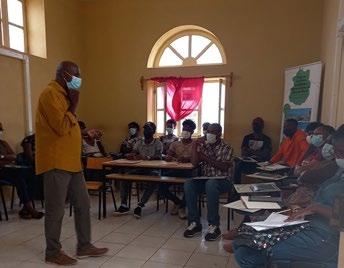
DEC 2017 – MAY 2021
Strengthen and diversify the tourist offer in Maio Island, by increasing income generating activities linked to solidarity and sustainable tourism and by promoting participatory techniques.

Direct: local and community associations of Maio Island, board members, associates and family members; professionals of traditional economic activities and rural population (with particular focus on women and youth): farmers, livestock farmers and other traditional activities; association of cheese producers from Ribeira Dom João; municipal technical officers; associations and Boavista City Hall. Indirect: population of Maio Island and visitors.

European Union and Camões, I.P.

Maio City Hall and Loures City Hall

Tourism Development Society of Boavista and Maio Islands and Boavista City Hall

In 2021, in order to better welcome tourists, the requalification work of 10 homestay houses in rural communities was completed.
In order to improve the population’s quality of life, the traditional activities of fishing, agriculture, and cattleraising have continued to be requalified and dynamized as a tourist offer.
In the fishing sector, two locally built boats were delivered to two fishermen’s associations for recreational activities in fishing and diving, and the rehabilitation and equipping of two fish conservation and processing units, managed by two groups of women fishmongers, was completed in Porto Inglês and Calheta.
In the agricultural sector, with technical support from the Agriculture and Environment Ministry and managed by two farmers, a greenhouse equipped with a pump powered by solar panels has been installed in Pilão Cão area.
Two grog producers were also given support to comply with the production hygiene and safety requirements defined by law.
In the livestock area, ten billy goats were handed over to breeders in order to improve the breed, and new corrals were built, with the objective of increasing the milk availability for cheese production.
Several training courses have been held for the entire island localities’s community associations: Associativism; Strategic Planning; Project Management and Introduction to Resources and Partnership Mobilization Techniques.
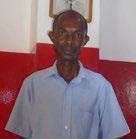
In the wake of the training courses, a call for proposals for financial support to Civil Society Organizations projects was launched, having been selected five in the tourism and culture areas. Simultaneously, the four youth entrepreneurship businesses, started in 2020, continued to be supported by the project.
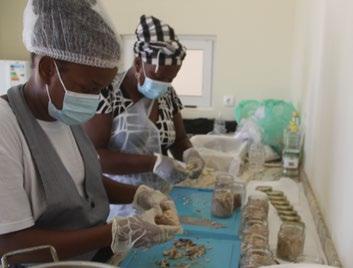
Five Cooking, Food Hygiene and Safety, Good Practices and Food Handling and Customer Service training courses have been held, as a follow-up to the previous years’ tourism and hospitality oriented training courses.
Furthermore, in order to share the good practice of the participatory budgeting on Maio island, an interchange was held with Boavista island
In the project’s closing session, the promotional films, produced during the project implementation, on the Productive Activities Tourist Circuit and the Cheese Route, were shown.
Alberto Ribeiro “Malaquias” President of Barreirense Football Club, Vila do Barreiro“I consider the project very important, in the sense that the people of Barreiro have been working on protecting the environment, recognizing that our community has potential and that it needs to be known and explored and can be enjoyed, both by our residents as well as visitors.”
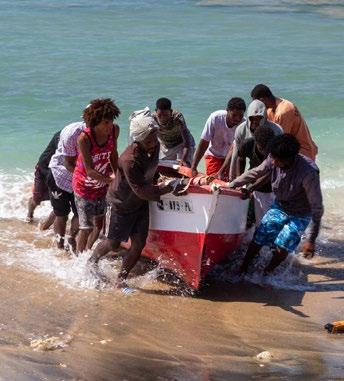
Build a sustainable territorial development model on Maio island.

Direct: City Hall and local delegations representatives and technical officers (Health, Education, Cul ture, Environment/Agriculture, ICIEG - Capeverdean Institute for Gender Equality and Equity, and Police); community associations, cooperatives, and other local civil society organizations; women, youth, children, and teenagers; farmers and livestock breeders, fishermen, women fishmongers, cultural agents, artists, craftsmen, and small business entrepreneurs. Indirect: citizens of Maio island in all its diversity, civil society and private sector.
European Union PARTNERS

Maio City Hall, ADPM - Mértola Heritage Defense Association and Maio Biodiversity Foundation
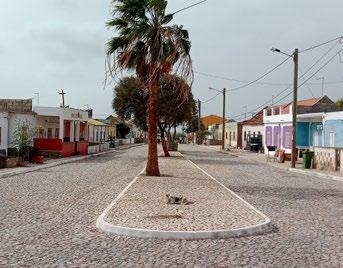
As the project started in September 2021, the first four months were dedicated to hiring the technical and administrative coordination team, and presentation sessions were prepared and held in order to present the project to Cape Verde’s state centralized services representatives.
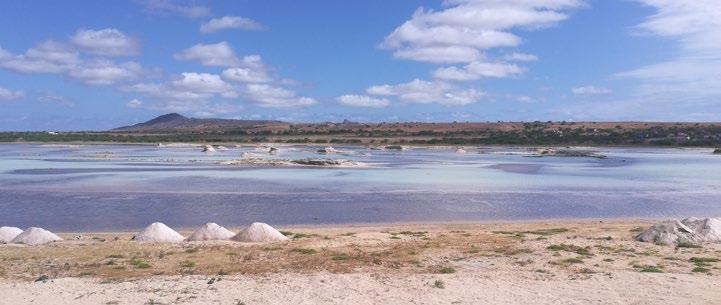
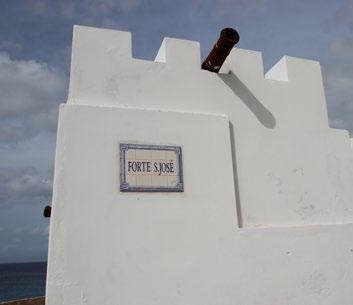 Emílio Ramos, Maio City Hall Councilman
Emílio Ramos, Maio City Hall Councilman
“This Programme is important because, on one hand, it proposes substantive actions that will be the weight balance between the public and private investments that are foreseen for the island in the coming years and their proper use and appropriation by the population and, on the other hand, it involves local, national and international partners, which demonstrates the usefulness and multiplier effect of networking in the local development process.”
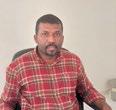
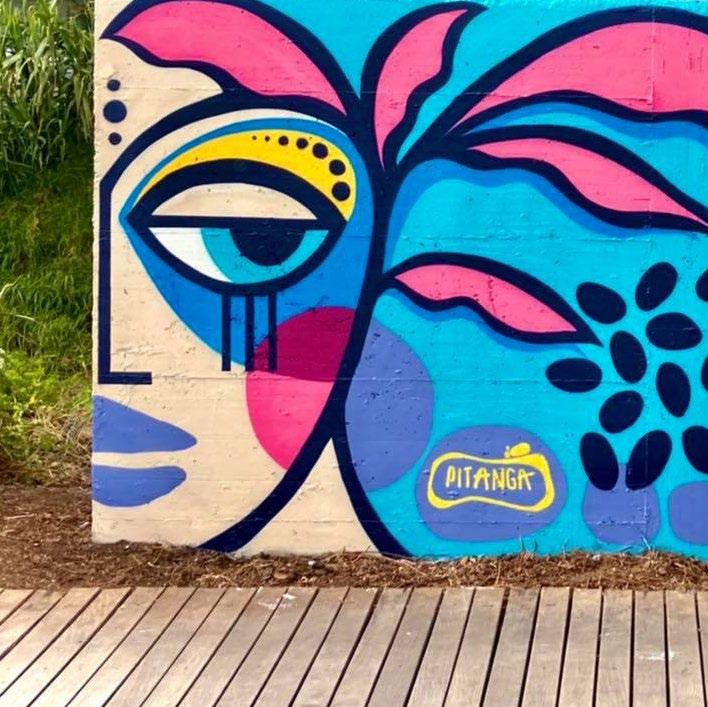
Local authorities and particularly municipalities are key actors for statebuilding and development. Our actions aim to contribute to the institutional strengthening of public institutions in the countries where we in tervene, as well as to the participation of citizens in public affairs. The projects held and in which we have participated in recent years are located in Guinea-Bissau, East Timor, Angola and Cape Verde. In Portugal, we have been working in partnership with a network of municipalities.
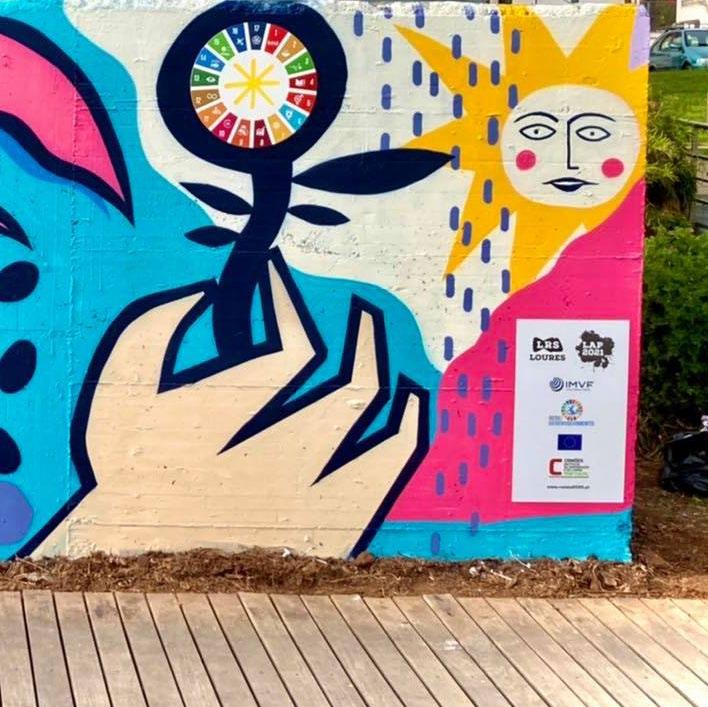

PORTUGAL (Alentejo and Algarve) and SPAIN (Extremadura and Andalusia) MAY 2019 – SEP 2022
€ 172,709 (global: € 1,068,268)
Improve the capacities of administrations and public organizations in basic resource management (SDG11); increasing citizen participation and its political impact through the promotion of projects in the areas of production and consumption, implemented and managed by social entities and civil society (SDG12); and improve the articulation of cross-border space through environmental projects promoted by social economy entities and local governments (SDG13).


European Union (INTERREG VA – Spain-Portugal POCTEP) PARTNERS
Agencia Andaluza de Cooperación Internacional para el Desarrollo (AACID), Agencia Extremeña de Cooperación al Desarrollo (AEXCID), Fondo Andaluz de Municipios para a Solidariedad Internacional (FAMSI), Fondo Extremeño Local de Cooperación al Desarrollo (FELCODE) and Associação In Loco

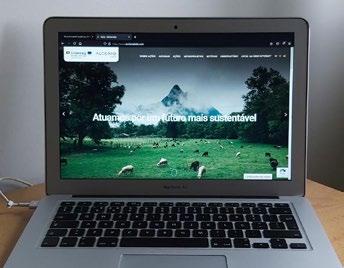
Municipalities of Alentejo and Algarve (technicians and municipal leaders), Civil Society Organizations (CSOs) and other social entities.
With a trans-regional approach, the project has been emphasizing actions that favor Sustainable Development Goals (SDGs) objectives, namely those related to territorial planning and environmental sustainability.
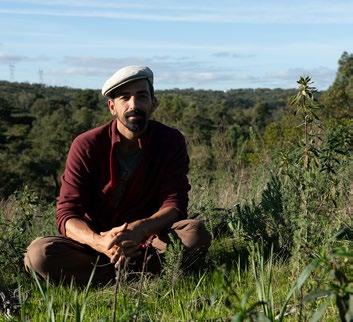
In this context, a Training Trainers course on SDGs and a Sustainable and Responsible Consumption and Production course was held in 2021 for local authorities and Civil Society Organizations.

To raise awareness among a wider public, the Webseries 2030 was produced, entitled Responsible Consumption and Production as well as its promotional campaign. In order to put it into practice, micro-projects on SDGs were funded, with social, environmental and sustainable practices.
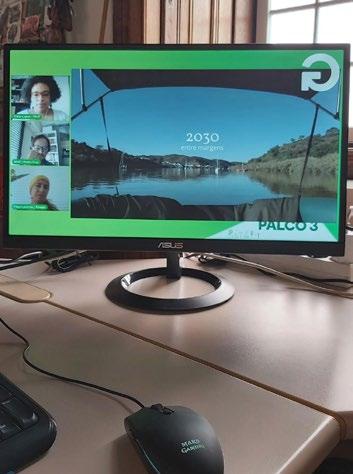
Vânia Martins, project coordinator at In Loco Association, partner entity of the project
”I emphasize that the project is mobilizing and channeling different synergies, inside and outside the consortium, in order to fulfill the proposed objectives, trying to enhance and give visibility to the existing good practices, creating SDGs reflection and debate spaces, in different formats and managing to adapt to the online tools, a format that was not foreseen.”

Reinforce the role of 22 Portuguese municipalities in the promotion of Development Education and Global Citizenship and sustainable development, in order to contribute to citizens’ understanding about the importance of local action for achieving SDGs, and to encourage them to act for fair and sustainable global development.

TARGET GROUP
22 portuguese municipalities, 220 municipal technicians and policy makers (150 women and 70 men), 1 million citizens, 35 local and national media organisations, and 22 local Civil Society Organisations.
Camões, I.P.
Inter-municipality Network for Development Cooperation (RICD) and Oeiras City Hall
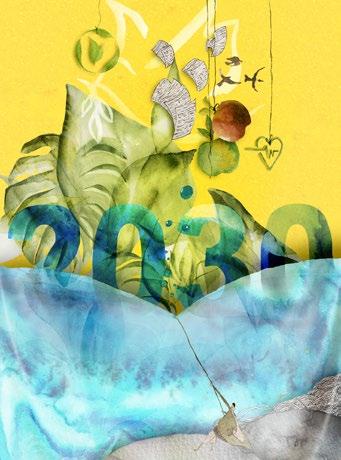
Currently, 55% of the world’s population live in cities and these cities are responsible for producing 70% of greenhouse gas emissions into the atmosphere. The commitment, shared with our partners, aims to promote the 2030 Agenda and the achievement of SDGs, as well as to strengthen our involvement in the definition of coherent public policies aligned with a fair, worthy, inclusive and sustainable development process. The achievement of the SDGs depends on our capacity to make them a reality in cities and regions.
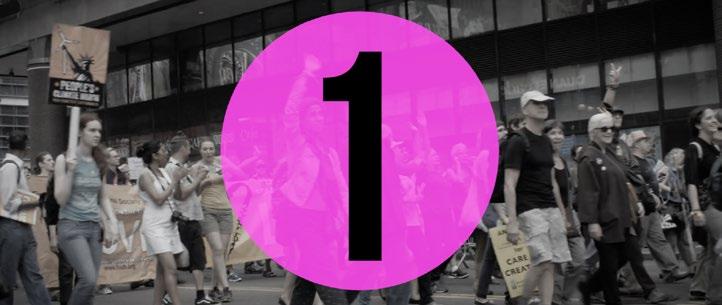
Therefore, to enhance the local empowerment of the SDGs, an intense training programme was developed in 2021 (and throughout the 24 months of the project), targeting policy makers, municipal technical officers and members of the education community. Information and training manuals were produced and disseminated to strengthen knowledge and critical reflection on the 2030 agenda; training programs were also held for policy makers and municipal technical advisors, which enabled experience exchange, and more than 18 awareness-raising actions were organized for about 1 million citizens, aimed at promoting social justice and generating social, economic, political and environmental transformation processes.
Rosa Videira, senior municipal technical advisor of Odivelas City Hall“I highlight the work of IMVF’s team that organized “SDG Labs” training, especially regarding the mapping of existing actions/projects in the municipality of Odivelas and the connection established with each of the 17 SDGs, thus making it easier to understand their importance in the municipality.”
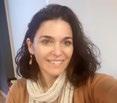
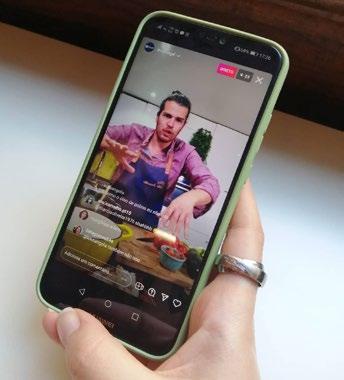


2020 – OCT 2024
Contribute to the awareness, critical thinking and mobilisation of young peo ple in the European Union on the climate change challenges by promoting changes to practices and policies at the local level, in coherence with global sustainable deve lopment; as well as to strengthen the local authorities, municipal associations and civil society organisations role as key actors in promoting sustainable development and as agents of change in the context of climate change.
Young European citizens aged 15 to 35, municipal technicians and local policy-makers.
€ 1,243,609 (Global: € 6,714,846)
European Union (DEAR Programme) and Camões, I.P.

16 organisations from Germany, Spain, Ireland, Italy, the Netherlands, Poland, Portugal, Romania and Cape Verde
* IMVF is a partner in the project managed by CM Loures, but assumes its overall operational management
By 2030, water scarcity in arid and semi-arid areas of the planet could lead to the displacement of up to 700 million people on all continents. Water scarcity and climate change are global problems.
In 2021, an effective strategy of coordination and communication between partners was consolidated, with the establishment of working groups and a shared monitoring and evaluation system. The activities timeline was reorganized and the approach readapted, with specific guidelines per activity. The pan-European #WaterOfTheFuture campaign was planned to be launched on March 22nd, 2022 - World Water Day. The “SDG on the Street” campaign registered the following actions: i) selection of 10 street action proposals from national NGOs and youth associations, through a sub-granting mechanism; ii) Support to Loures Municipality “SEEH20” exhibition - a new look on water, and to a debate on the fight against climate change among high school students; iii) webinar promotion on sustainable cooking, with Chef Fábio Bernardino, dedicated to food sustainability and rational water usage in the kitchen; iv) entities that will be at the basis of the youth advisory groups establishment from 2022 onwards were hired. Aiming at the capacity building and mobilization of local authorities, the project promoted a first moment of partners training in communication for development.
A survey was conducted in order to gather the youth’s (15 to 35 years old) opinions and concerns regarding climate change, with the aim of informing future decision-making processes, both of the project and local authorities. In 2021, eight “All SDGs are local” trainings were also held for 178 municipal technical advisors to enhance the relevant policies’ glocal dimension for sustainable development and climate change.
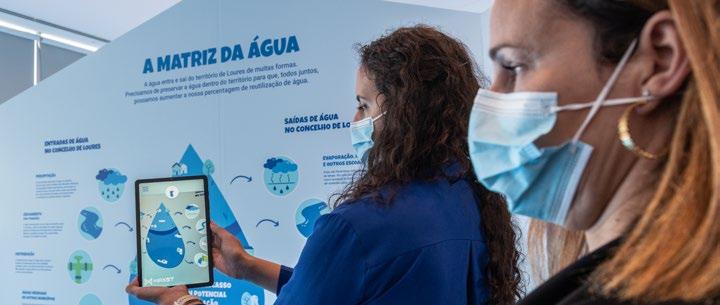
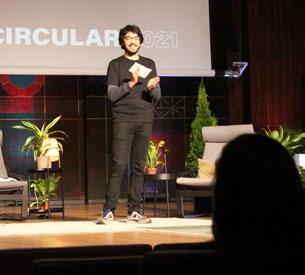
“The project funding allowed our big event, Circular 2021, to be as sustainable as possible. The contribution was used in the stage construction, REBOOT team t-shirts, REBOOT lettering and communication. Thanks to the People & Planet support, our event exceeded the participants’ expectations as well as our own.”
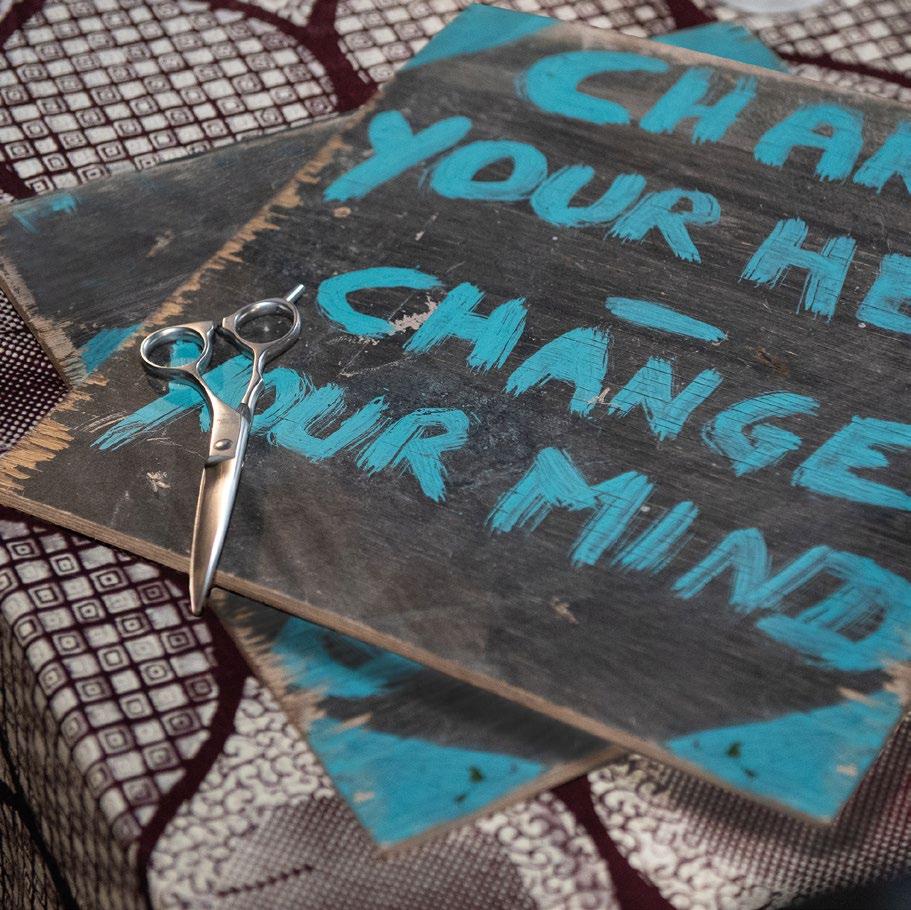
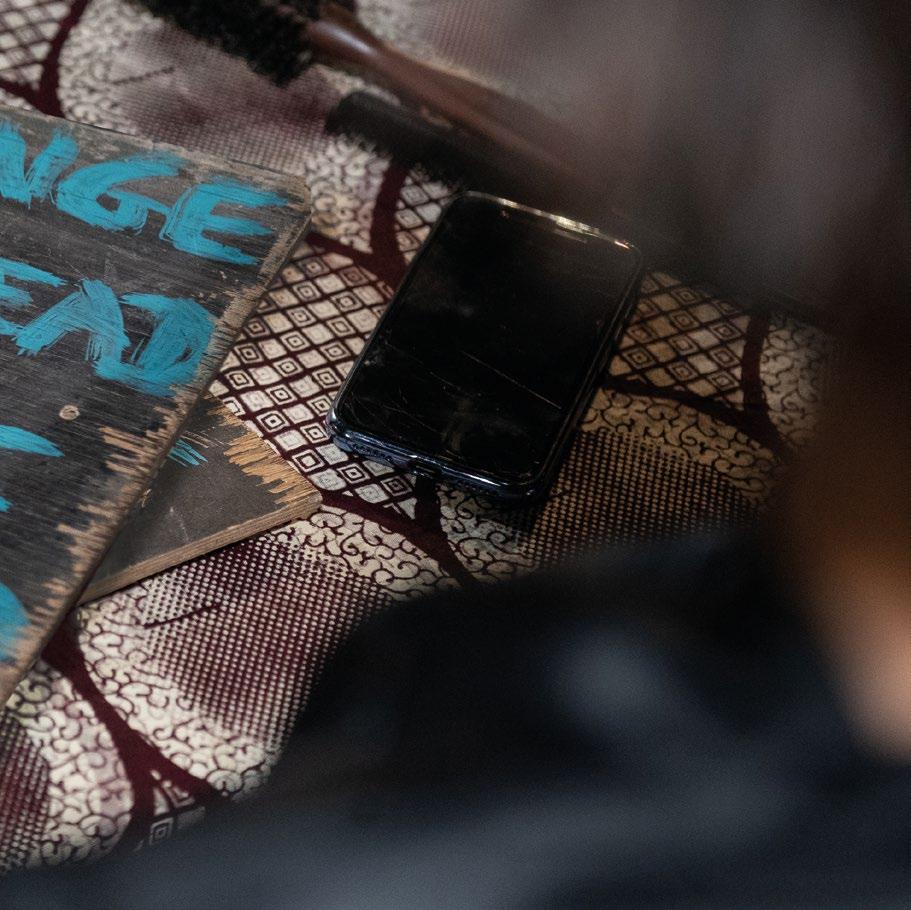


2020
2023
Raise awareness among young European citizens on the relationship between clima te change and migration, highlighting the interconnections with the current development model, economic system and sustai nable lifestyle.
€ 394,874 (Global: € 10,252,681)


European Union (DEAR Programme) and Camões, I.P.
16 organisations from Austria, Belgium, Bulgaria, Cyprus, France, Germany, Greece, Hungary, Italy, Poland, Slovenia, Spain

European citizens between 16 and 35 years old.
The role of climate change in migration trends, along with the legal status of migrating people as a result of climate change impacts, is complex, requiring a detailed understanding of the factors underlying migration.
A pan-European survey on climate change, migration and the current economic model was launched among young people, with 22,377 responses. The results analysis led to the intensification of campaign actions, to the promotion of awareness raising resources - such as three illustrations and more than 5,000 seed bombs - and to the promotion of digital contents, such as the “Changing Times” podcast. Debates, critical reflections and active listening processes were promoted, using innovative methodologies, among more than 287 secondary school and university students in Portugal. A European petition was launched demanding climate justice and an open letter to the EU Portuguese Presidency, requesting a fair and inclusive climate transition for all people, which brought together more than 33 civil society organizations. A contemporary circus show was also hosted for two days in Oeiras, with an audience of over 1,500 people.
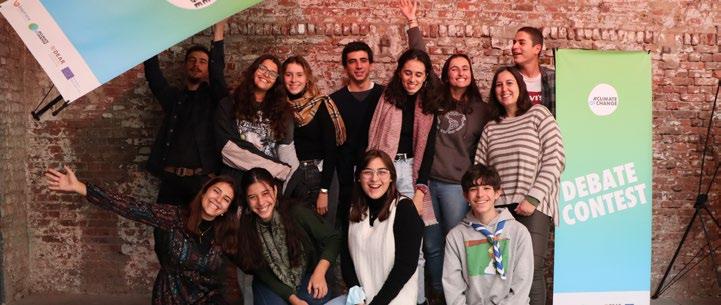
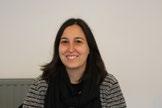
“The positive aspects that I highlight were the diversity of speakers and the ability that young people had to debate such complex issues, such as migration and climate change, and even to advocate positions that are against what they defend - that left me quite positively surprised.”
2020 – AUG 2023
Ensure that young Europeans commit to European development policies, contribute to the mitigation of the global challenges of migration and climate change and to a sustainable food production and consumption.

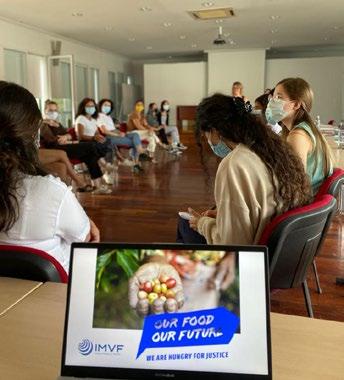

BUDGET € 481,485 (Global: € 11,158,585)
European Union (DEAR Programme) and Camões, I.P.

18 organisations from Austria, Belgium, Cyprus, Czech Republic, Denmark, France, Germany, Greece, Hungary, Italy, Latvia, Lithuania, Poland, Portugal, Romania, Slovakia, Slovenia, Spain
TARGET GROUP 30 million young Europeans.

EUROPEAN YOUTH STAND UP FOR SUSTAINABLE FOOD SUPPLY CHAINS THAT RESPECT MIGRANT WORKERS’ RIGHTS AND REDUCE CLIMATE CHANGE, HUNGER AND POVERTY AS KEY DRIVERS OF MIGRATION PORTUGAL
The food system has a huge influence and impact on climate change and migration causes (poverty, hunger, etc.). To ensure a sustainable change in attitudes and behaviors, it is necessary to mobilize citizens, especially the youngest ones.
In 2021, several campaign actions were developed based on the knowledge - awareness - mobilization axis, through studies, webinars, youth labs, street actions, online communication campaigns, and videos. The released studies, in particular on the duty of care, ensuring that human and environmental rights are respected throughout the production chain, allow us to build advocacy action bridges, strengthening synergies with other development actors, as exemplified in the “Stop human rights violations and environmental destruction in the food sector” petition. In order to probe and work with young people on ethical food issues, five national youth laboratories were promoted, with the participation of over 100 young people, three probing sessions to identify the main challenges that young people consider when adopting a more sustainable lifestyle were supported, and the survey “What do Portuguese think about food and food industry” was released, which allowed to draft a communication strategy oriented towards mobilization.
A pan-European Manifesto was developed with young people, with basic work guidelines and partners’ implemented activities. Street and online actions were developed, together with festival and other events participation, in order to promote sustainable processes of social, economic and environmental change.

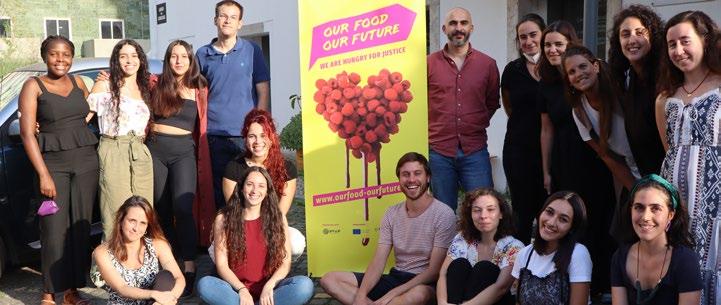
Raquel Serdoura, International YouthLab “Right to Food” participant
“It was a dynamic and quite empowering space, where I could meet several activists and think of new ways to create meaningful change, namely regarding such an important topic as the right to dignified food.”
MAR 2020 – AUG 2021
To support civic and democratic participation, the development of a clearer understanding of European Union’s migration policy-making process among its citizens and the creation of specific opportunities for social, intercultural and voluntary participation.
€ 20,560 (Global: € 141,120)
União Europeia (Programme Europe for Citizens)



European organisations from Belgium, Italy, Romania and Serbia, namely ACTA Center, Vocal Europe, Cooperazione Paesi Emergent (COPE) and Terraforming
Young people between 18 and 30 years old, migrants, policy makers, social media and civil society.
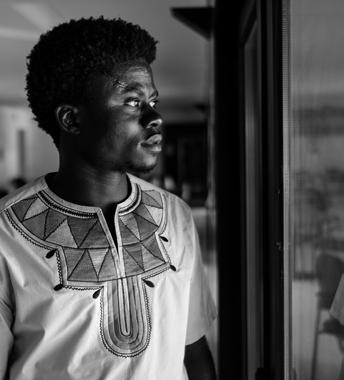
On a global level, in 2019, the number of international migrants was 272 million, 3.5% of the world’s population. Public attitude and social relations are influenced by the prevailing narratives about migrants. It is therefore crucial to change the dominant rhetoric and counter the stereotypes attached to migrants by creating new, real and trustworthy narratives.
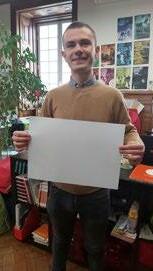

In order to promote youth civic participation, five online WorkLabs were organized over 17 months, in which 157 young people participated and in which migration narra tives were debated, myths and prejudices were decons tructed and the migration policies of the European Union were analyzed. To reach an even wider national and international audience, two webinars on migration were also organized as well as the Voice for Youth: Migration Lab conference, attended by 36 young people, including two Portuguese girls, where policy recommendations on migration were presented to MEPs by young represen tatives from the five partner countries. Simultaneously, throughout the project, several awareness-raising mate rials were created and disseminated, such as the project’s website, 18 newsletters, nine videos on migrants’ life stories in Portugal, and booklets with local artists’ illustrations, allusive to the project’s theme.
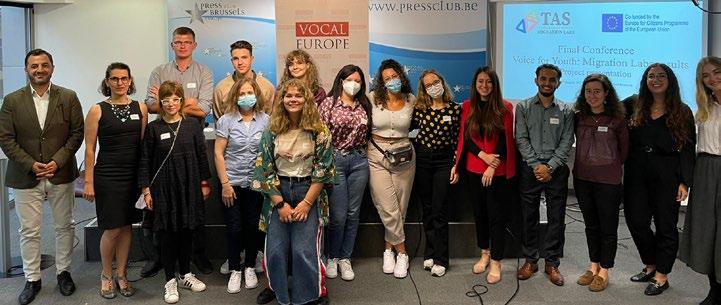 Fred Gomes | @fredaagomes
Fred Gomes | @fredaagomes
Gonçalo Pessôa, WorkLabs participant
“My participation in the project’s WorkLabs was very important for me, as it contributed to the strengthening of my critical thinking and analysis skills on various migration-related issues.”
2020 –
To contribute to knowledge reinforcement and to the application of Policy Coherence for Development at national and European level among political decision-makers, within the framework of the European Union’s Council Portuguese Presidency.

30,447 (Global: € 186,742)

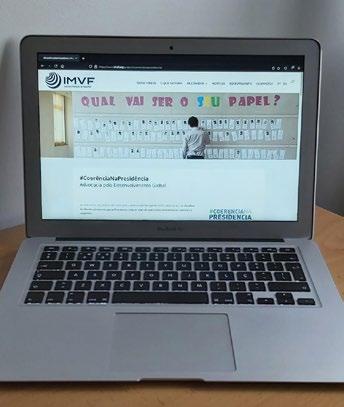
Camões, I.P.
FEC – Faith and Cooperation and CIDSE – Together for Global Justice
National and European policy makers, public administration technicians, Non-Governmental Development Organisations, local agents networks and general public.

Since 1992, Policy Coherence for Development (PCD) has been an essential pillar of the European Union in the impact and effectiveness reinforcement of the development process. Alongside the efforts of other Development Actors, it is necessary to continue promoting both legislative and practical responses that promote sustainable and dignified development.
In 2021, within the European Union’s Council Portuguese Presidency framework, five thematic studies on key areas covered by PCD were prepared and widely disseminated: Climate Change; Security; Food Sovereignty; Trade and Finance; and Migration, with recommendations that enabled greater advocacy work. By supporting the process and fairer legislative practices, the studies also enable the Development Actors knowledge on PCD to be reinforced as well as the petition project to the Portuguese Parliament: “National Day for Global Development”. Alongside this process of knowledge and advocacy reinforcement, a citizens’ survey process was launched, with the questionnaire “Global Development and The Portuguese”, which is an essential tool to assess the main understandings within Global Development. To promote citizen involvement in the development process and synergies between projects and communities (a priority across all project activities), a micro website was set up to explore knowledge on the main themes of CPD, videos, digital postcards, challenges on social networks, webinars and workshops - activities that reached over 10,000 citizens

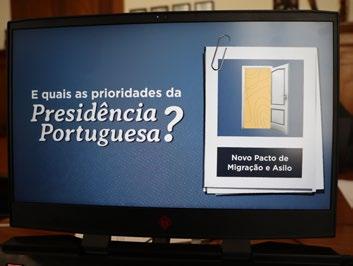
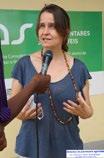
“It is essential to ensure that European public policies are effectively coherent, not only internally, but also externally. Surprisingly, we have seen the EUMercosur agreement brought to the European negotiating table: while talking about a fair transition need, the production of agro-fuels, soya, beef to supply the European market is encouraged.”
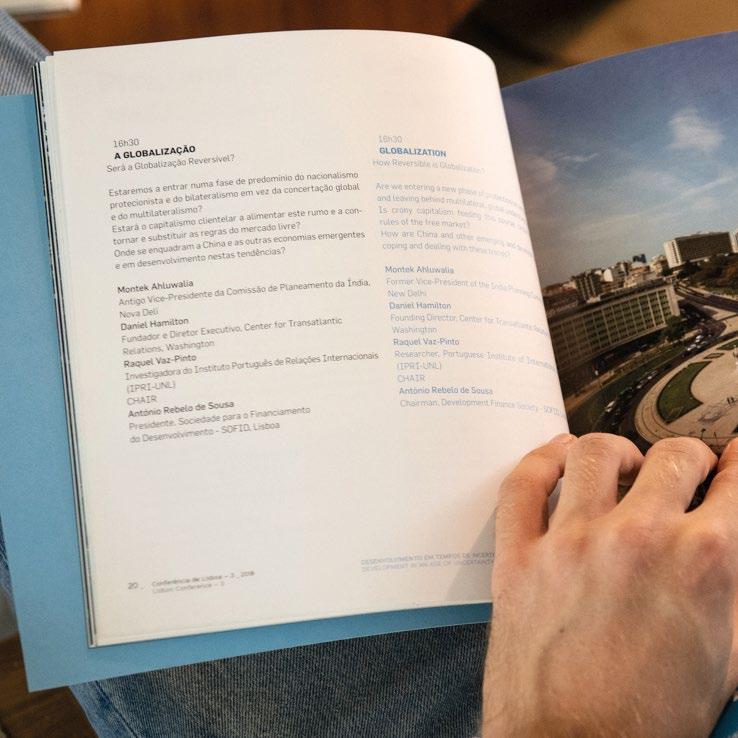
The current phase of acceleration and widening of global changes led to the establishment of a strategic and development studies area, which brings a new dimension of think tank analysis to IMVF’s regular activities, focusing on relevant issues that impact on Development and Cooperation. We have elaborated and published several studies and research papers/briefs, and we prioritise partnerships with various stakeholders – this has led to the creation of the Lisbon Club in 2016 and the Lisbon Conferences on global development issues in 2013, of which IMVF is a founding member.
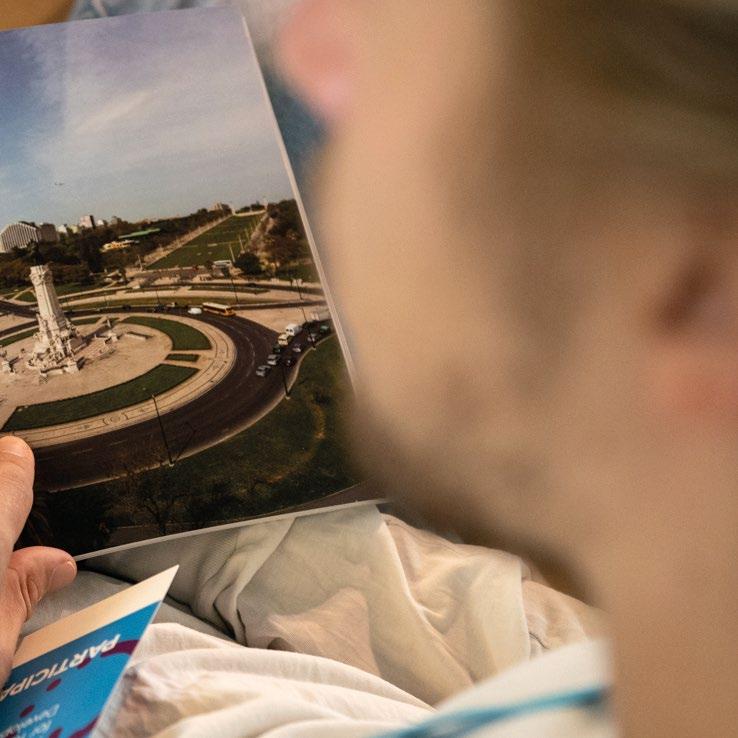

–
IMVF own funds (60%) and Lisbon City Hall financing (40%)

To contribute, through activities and publications, to Sustainable Development and International Cooperation knowledge increase and debate about its relevant issues, and to promote IMVF’s visibility and notoriety in Portuguese and international society, using, whenever appropriate, partnerships and collaboration with third entities, with emphasis on Lisbon Club, of which IMVF is a founding member and headquarters.

Diversified, mainly national.
Permanent: Lisbon Club, CML, UCCLA, CCIP and SOFID; occasional: European Maritime Safety Agency (EMSA), Japanese Embassy in Portugal, Blue Ocean Foundation, Portuguese Hydrographic Institute, Sustainable Ocean Aliance (SOAPortugal HUB), g7+, Camões, I.P., OECD, International Studies Centre of ISCTE-IUL (CEI-IUL), Calouste Gulbenkian Foundation, Diplomatic Institute, Faculty of Economics of Coimbra University, Universidade Católica Portuguesa (IEP-UCP), AIP Foundation, Portuguese Association of Water Distribution and Drainage (APDA) and European Parliament Office in Portugal.

Promoting reflection and debate on development is essential for the formation of more engaged citizens and for consolidating SDGs.
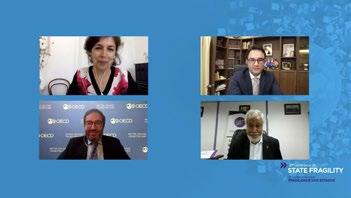
In 2021, Development and Strategic Studies Office (GEED) continued to focus its efforts on carrying out activities in partnership with third parties, with particular emphasis on two conferences, “The Ocean that Belongs to Everyone”, on February 22nd and 23rd, jointly with the Clube de Lisboa, CML and five partners, and, “Pandemic, Vaccination & Solidarity: Fragile countries implications”, on June 28th, in conjunction with g7+, the Lisbon Club, CML, and two other partners; the 7th Global Challenges Summer School training course participation, from September 27th to October 1st, for 82 participants, in conjunction with the International Studies Centre of ISCTE-IUL and the Lisbon Club; 18 webinars, (with the support of the Lisbon Club in the conception and implementation), namely seven Lisbon Talks and 11 Lisbon Speed Talks, on various subjects related to global challenges and international agenda relevant issues for peace and development; the posting of 12 publications on IMVF’s website, eight of which were produced by the Institute itself, two IMVF Policy Papers, and two more in partnership with the Lisbon Club, namely the books “The Acceleration of Global Change - and the impacts of the pandemic” and “The Ocean that Belongs to Everyone”; the holding of seven lectures - “NGOs and the Pandemic in Cooperation, and, the Development Virus” (open lecture, Universidade Católica Portuguesa, January 22nd), “Security and Development in Africa” (IDN, National Defence Auditors Course, February 8th), “Economic Impacts of the Conflict in Cabo Delgado” (SOFID, February 15th), “The War in Cabo Delgado” (IDN, CPLP National Defence Institutes network, February 26th), “Sub-Saharan African Conflicts” (IUM, General Officers Promotion Course, March 9th), “Contemporary Dynamics of Conflict in Africa” (IUM, African Studies Course, September 13th), “Cabo Delgado War’s External Contexts” (Universidade Católica de Moçambique, Beira, November 18th).
Sara Fortes da Cunha, editorial producer of Generator
“I had the opportunity to attend the conference “The Ocean that belongs to everyone”. Taking into account the primordial role of the oceans in climate regulation and its inextricable importance in climate change, a space for debate on this topic was lacking in the national scene. I highlight the multidisciplinary and diversity of guests, as well as the integration of young activists in the programme, with special focus on “The Ocean we need for the future we want” panel, which highlighted, among other topics, the urgency of greater involvement by civil society.”
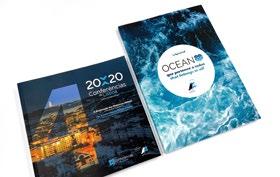
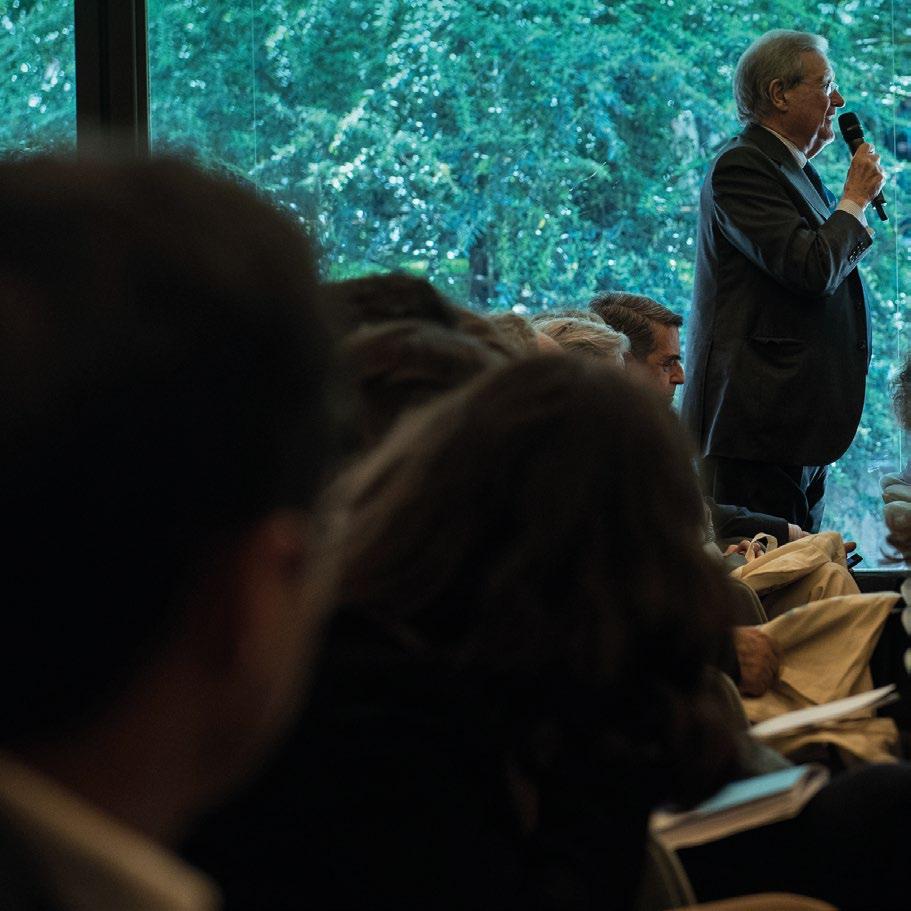
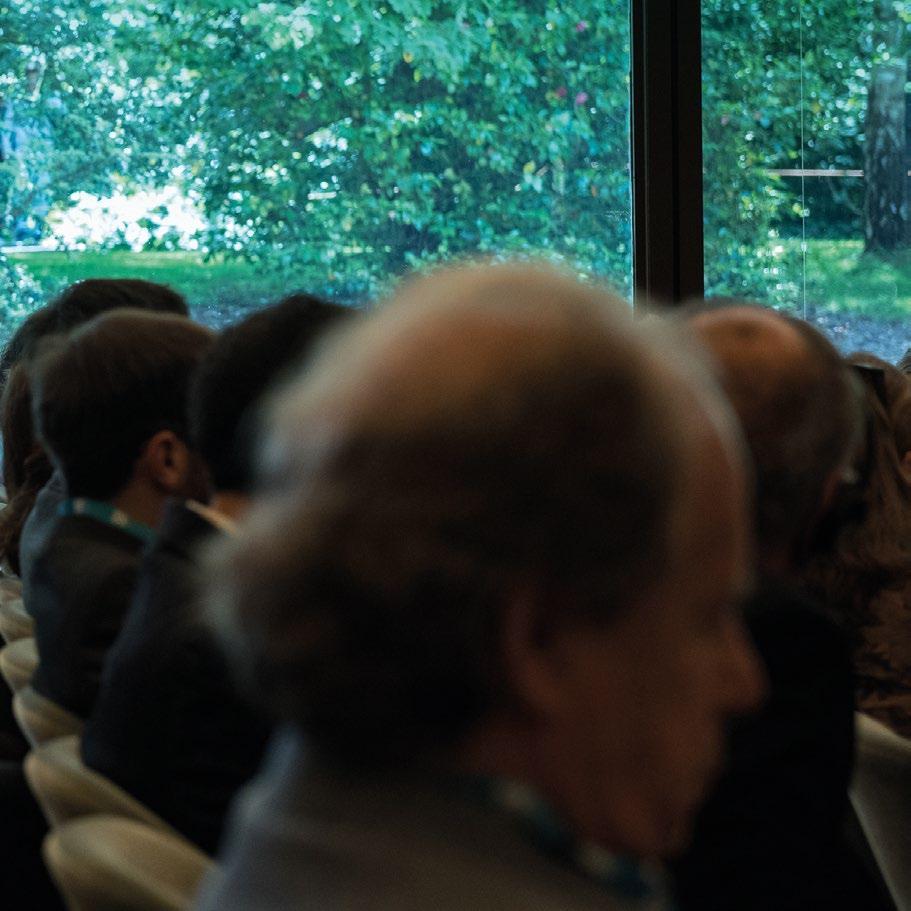
MAR24-25 | National Forum “Maternal and Child Health in Guinea-Bissau”, with Dr. Ahmed Zaky, IMVF Executive Director
MAY13 | Visit of São Tomé and Príncipe’s Minister of Foreign Affairs, Dr. Edite Ten Jua, to IMVF
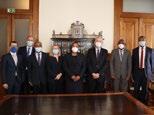
88
12 | Official launch event of the “For an open, fair and sustainable Europe in the world” project, by the Portuguese NGDO Platform
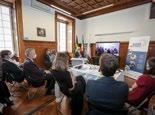
20 | Webinar “The European Green Deal’s Potential for development and social justice”, by CONCORD
25 | Conference “Global Health Conference: Strengthening the EU role on Global Health”, by European Union’s Council Portuguese Presidency
26 | Seminar “Peace Practices, Development and Humanitarianism”, organised by the Master in International Relations - Peace, Security and Development Studies of the Faculty of Economics of the University of Coimbra
20 | “Global Challenges” presentation in the scope of the “Triple Europe Game - Youth for an open, fair and sustainable Europe in the world!” project, by the NGO Rosto Solidário
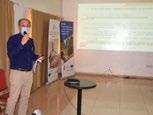
28 | ”The Private Sector’s role in the transition towards a green, fair and sustainable economy” seminar, by Portuguese NGDO Platform
18 | “Sustainability and Humanitarian Action” conference within the conferences cycle

“The Emergence of Sustainability”, by ISCTE-IUL
18 | Meeting with the President of the Portuguese Republic, Dr. Marcelo Rebelo de Sousa, as part of his official visit to Guinea-Bissau
18 | Inaugural medical appointment of Telemedicine specialty of Gastroenterology between Lisbon and São Tomé and inauguration of the Imagiology and Telemedicine Service of Dr. Ayres de Menezes Hospital in São Tomé
8 | “Cooperation between Portuguese-Speaking Countries” Colloquium, by the Union of Portuguesespeaking Capital Cities
8-9 | 1st edition of CPLP’s Young Researchers Meeting about Africa, with IMVF’s support
22 | “Volunteering across borders: testimonies in the first person” webinar, by the Coimbra Higher School of Nursing
18 | Greenfest Carcavelos 2021
21 | Visit of São Tomé and Príncipe’s Minister of Health, Dr. Edgar Neves, to IMVF


30 | Visit of Cape Verde’s European Union Ambassa dor, Mrs Carla Grijó, to IMVF
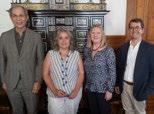
30 | “Pandemics and Vaccination: from a global threat to a global challenge?” lecture at Summer School on Global Challenges of the CEIIUL 7th edition, with the participation of IMVF’s Chair of the Administration Board, Dr. Paulo Freitas
6 | IMVF supports the iMED Conference 13th edition through medical internships assignements in São Tomé and Príncipe
23-24 | Visit of the Portuguese Secretary of State for Foreign Affairs and Cooperation, Dr. Francisco André, to Colombia
19 | Visit of the Portuguese Prime Minister, Dr. António Costa to Dr. Ayres de Menezes Hospital, in São Tomé, under his official visit to São Tomé and Príncipe
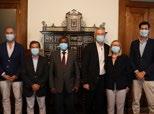
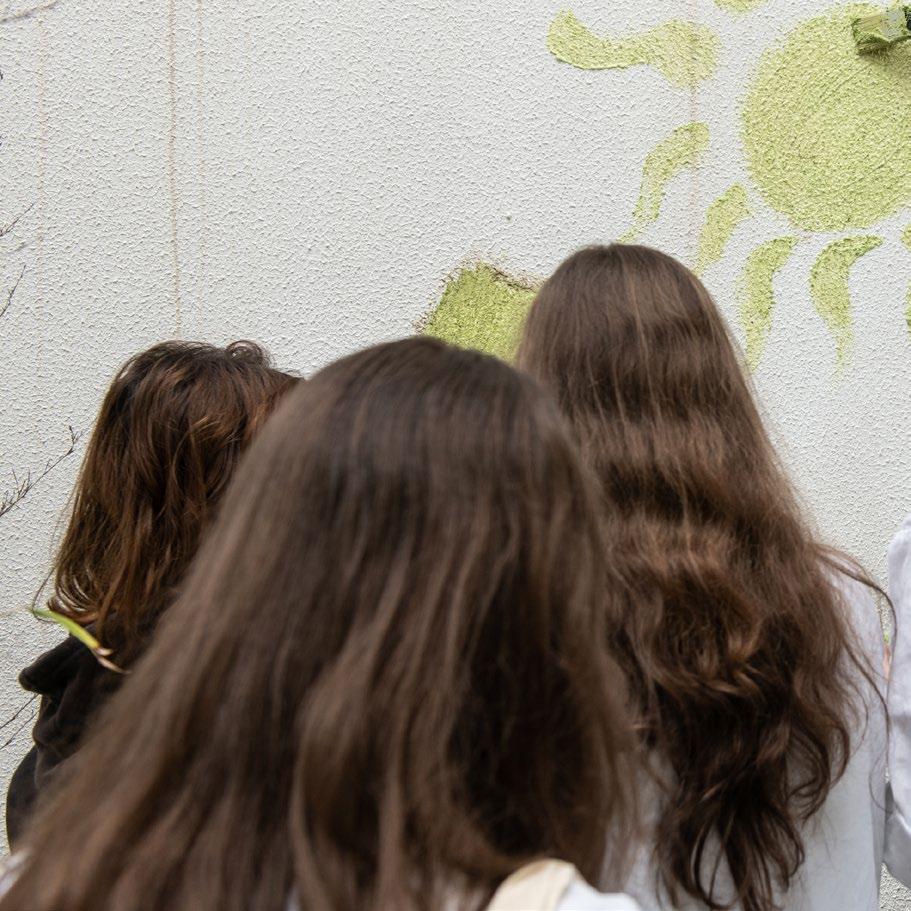
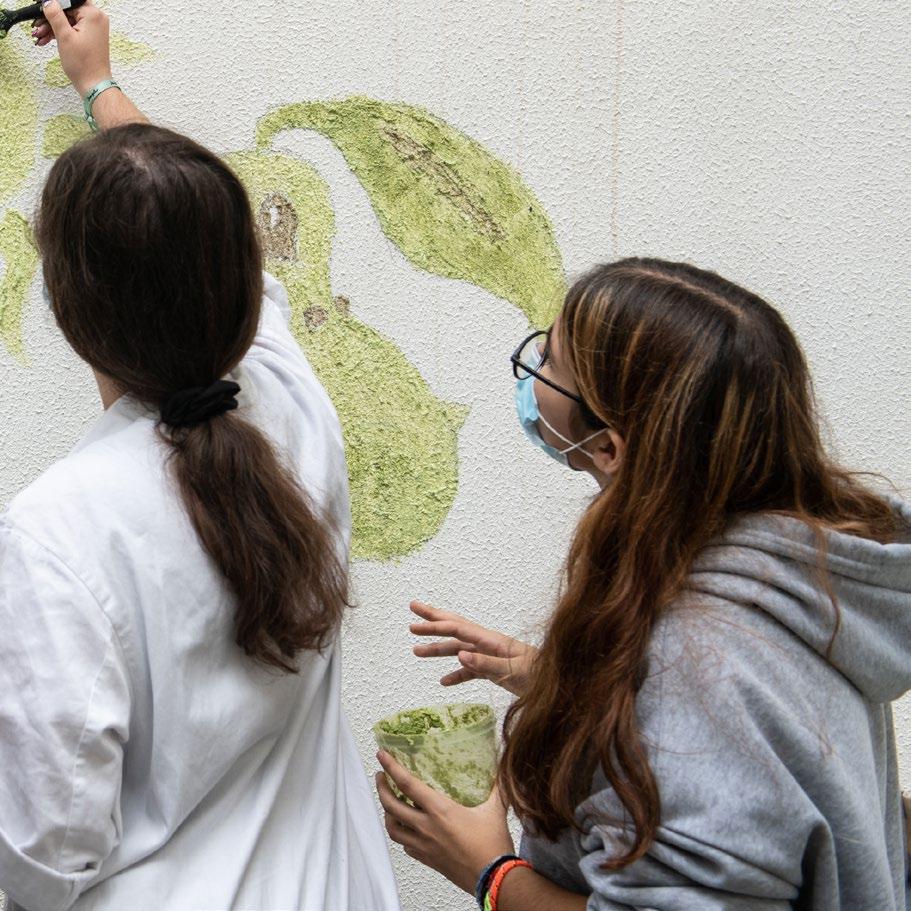
In 2021, the Communication team remained committed to publicising IMVF’s action, at institutional and project level, in the various areas of intervention and geographies where it operates, continuing to contribute to the institute’s knowledge reinforcement and recognition and giving a voice to the various development actors.
The Image, Communication and Events Office (GCIE) continued investing in IMVF’s website and social networks dynamisation - highlighting a substantial growth in followers and an increase in the various networks’ interactions, particularly on Instagram; in supporting the preparation and production of graphic, audiovisual and merchandising materials, favouring the use of sustainable materials; in consolidating internal and external communication; and in supporting and collaborating in the events and other institutional or project initiatives organisation.
2021 was also marked by the launch of two communication campaigns within the scope of European projects on climate change and migration and sustainable food, in which the communication team was directly involved.
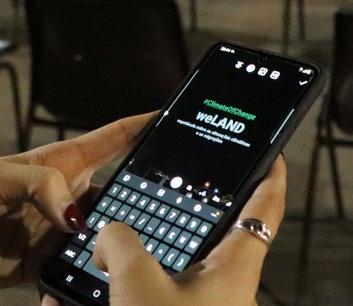
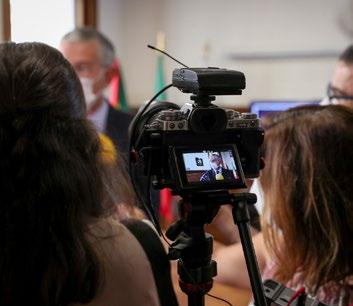
In June, a communication mission to São Tomé and Príncipe was undertaken for a fortnight, with the main objective of accompanying a documentary film production, which also enabled information, photographs and videos to be gathered on various activities and initiatives associated with the ongoing projects in the country.
It is also worth highlighting the closer relations with the field teams associated with the different projects, as well as the continuous support (in loco and at a distance) to the local technicians’ training in the communication and similar areas allocated to the projects implemented by IMVF.
In 2021 several news were published in various national and international media about IMVF activities, in addition to media reports, interviews, opinion articles and comments in several media.
The Point 15/02
MOYS, NEDI kick-off business development training for returnees
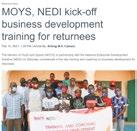
RTP Notícias 18/06
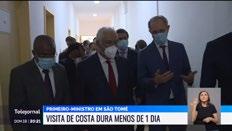

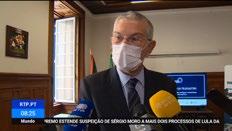
Portugal and São Tomé extend their cooperation in telemedicine to gastroenterology
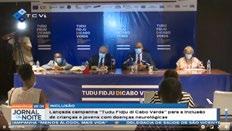
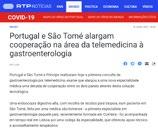
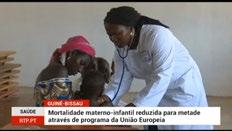
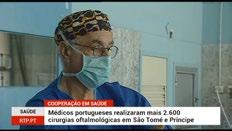
and child
is the first country in the world to provide remote gastroenterological medical appointments
Lente Regional 10/09
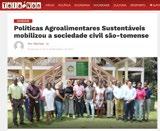
delivered the permit for the
use of Canangucha fruit to the Women’s Association of La Montañita “Asmucoca”.
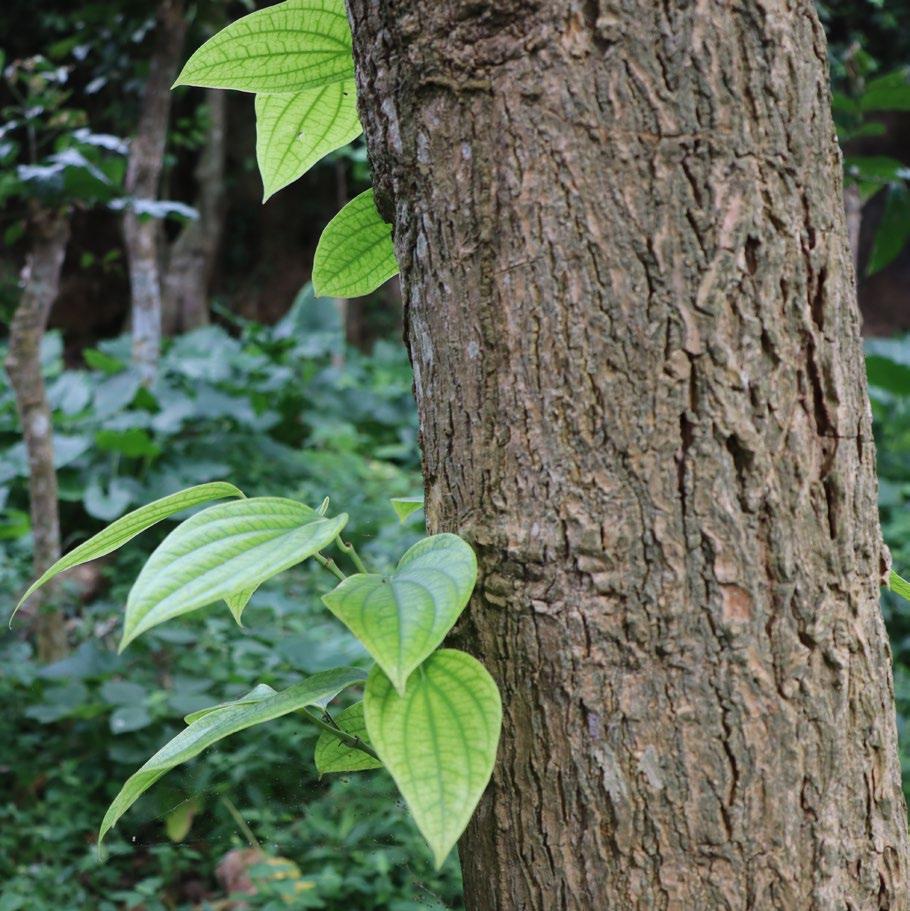
789
674
855
884
134 176 019
subsidies (Funds) 8 412 058 8 323 079
978 172 904
814 170 8 672 002
Rua de São Nicolau, 105 . 1100-548 Lisbon - Portugal tel.: + 351 213 256 300 - info@imvf.org www.imvf.org